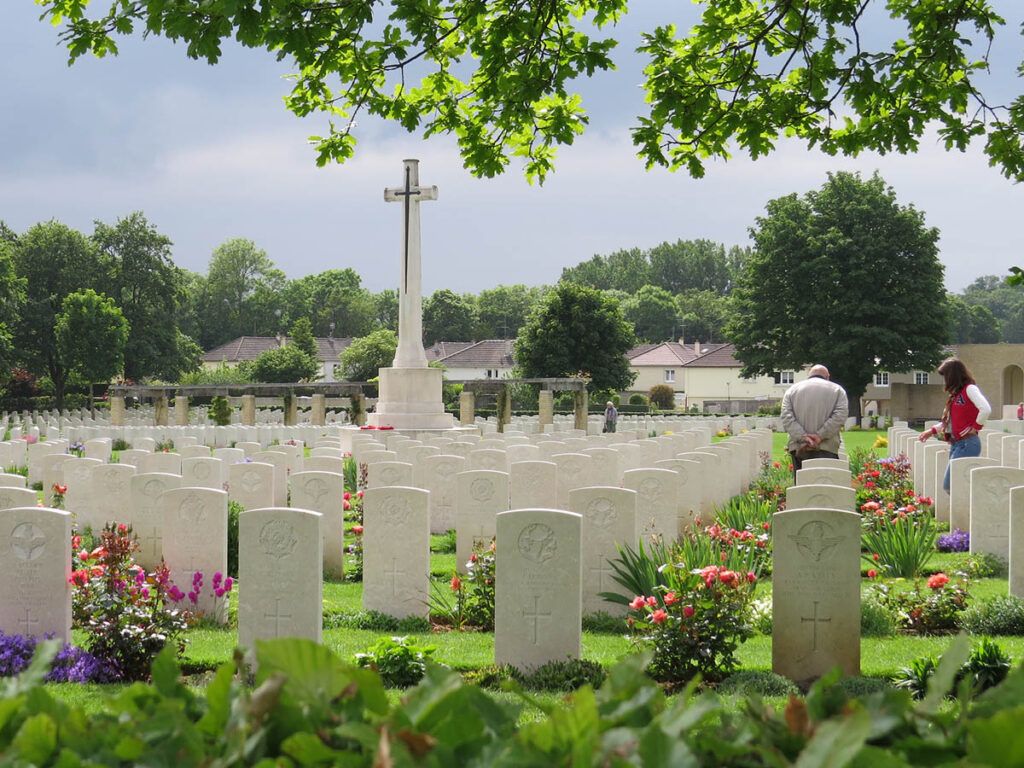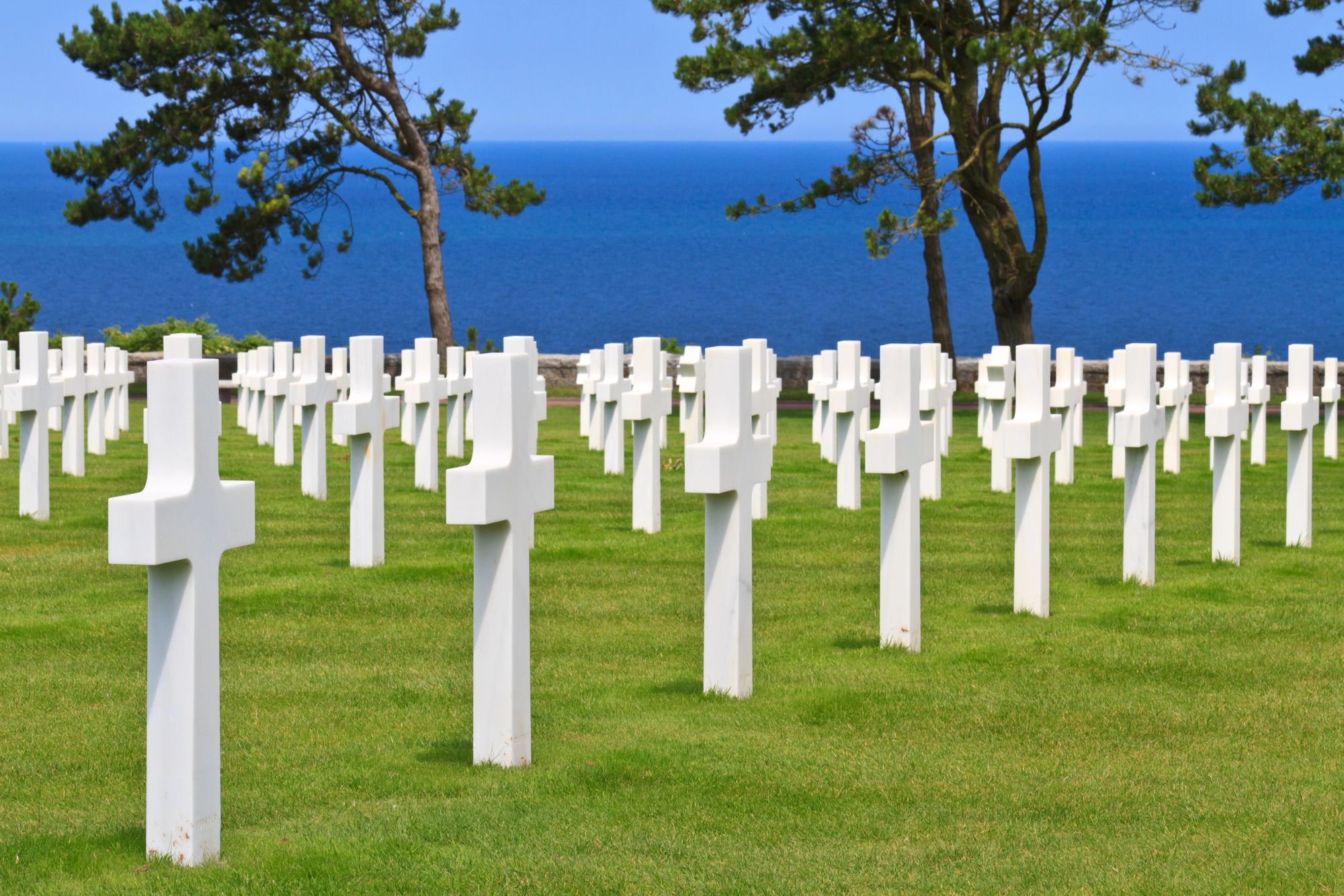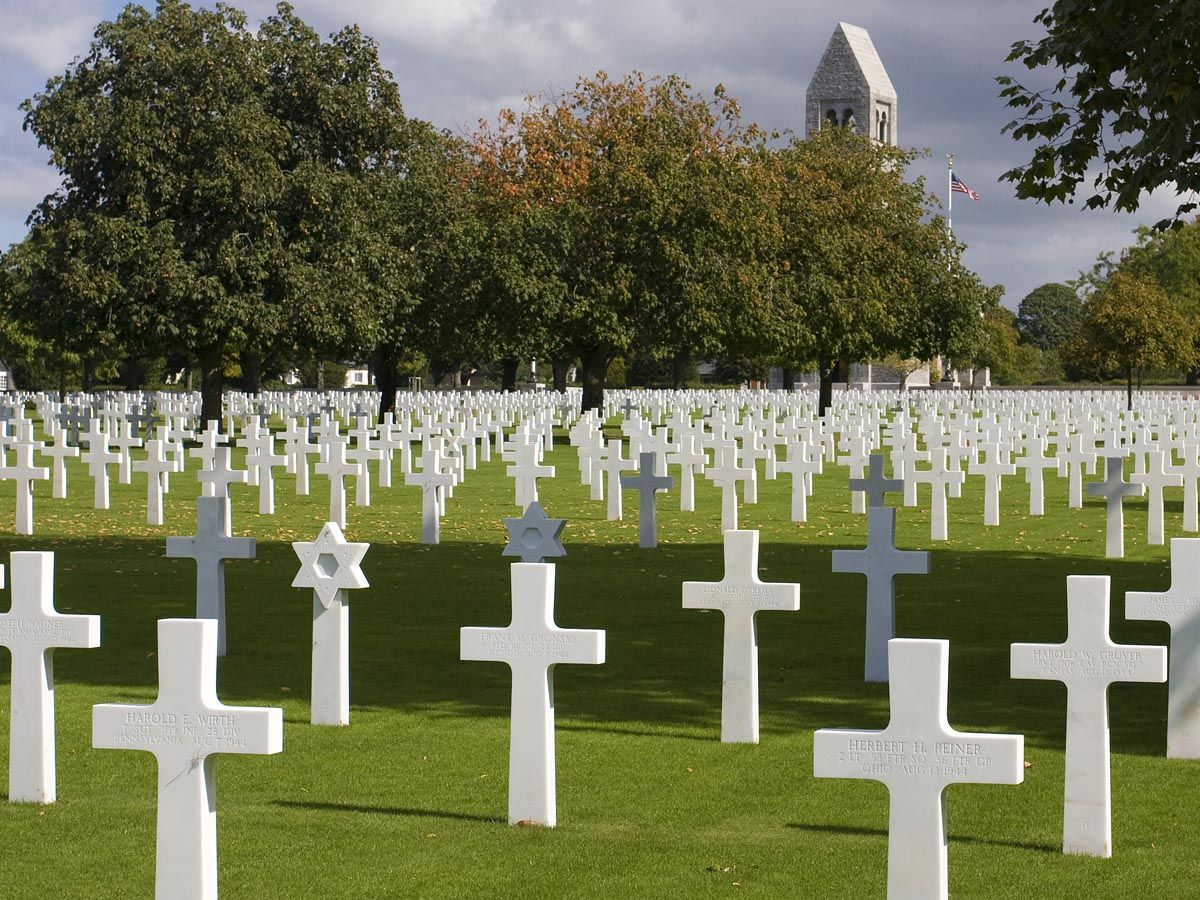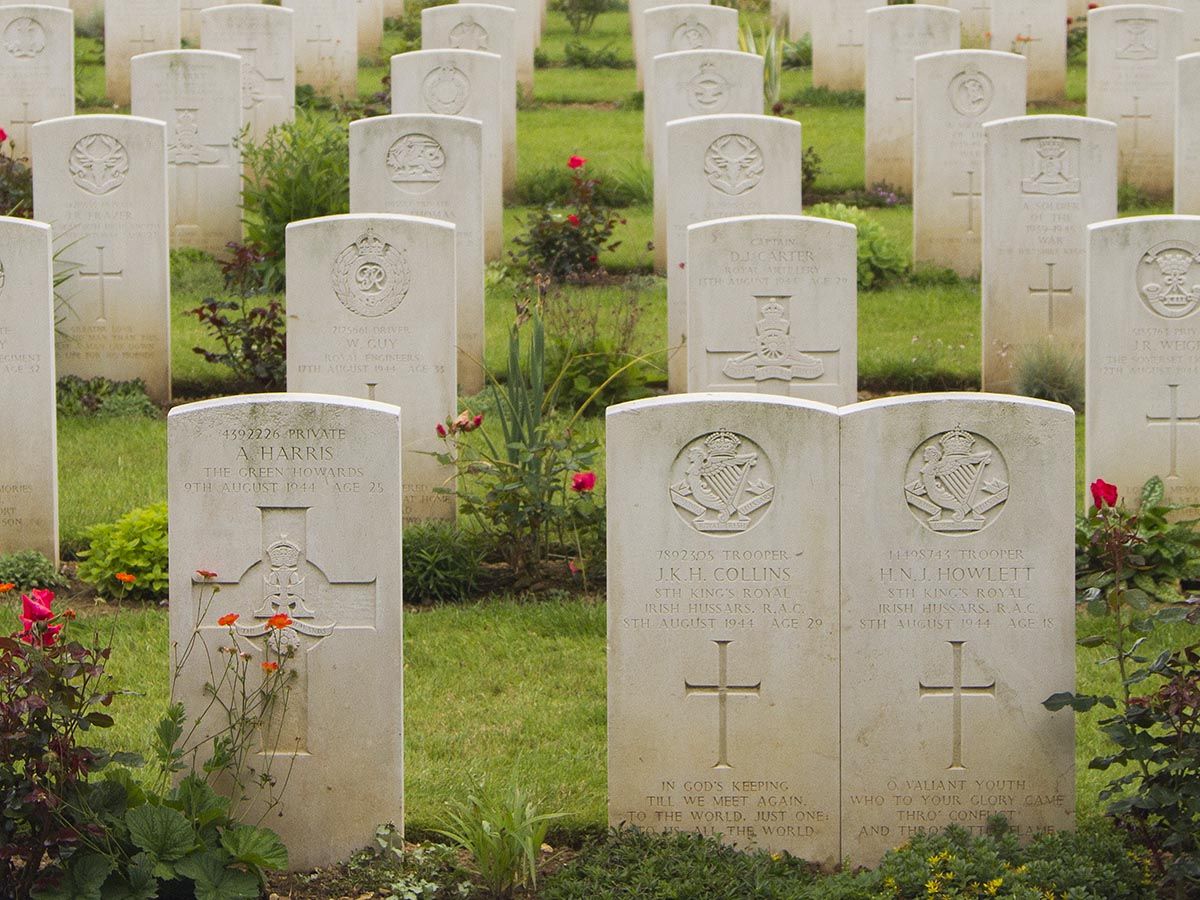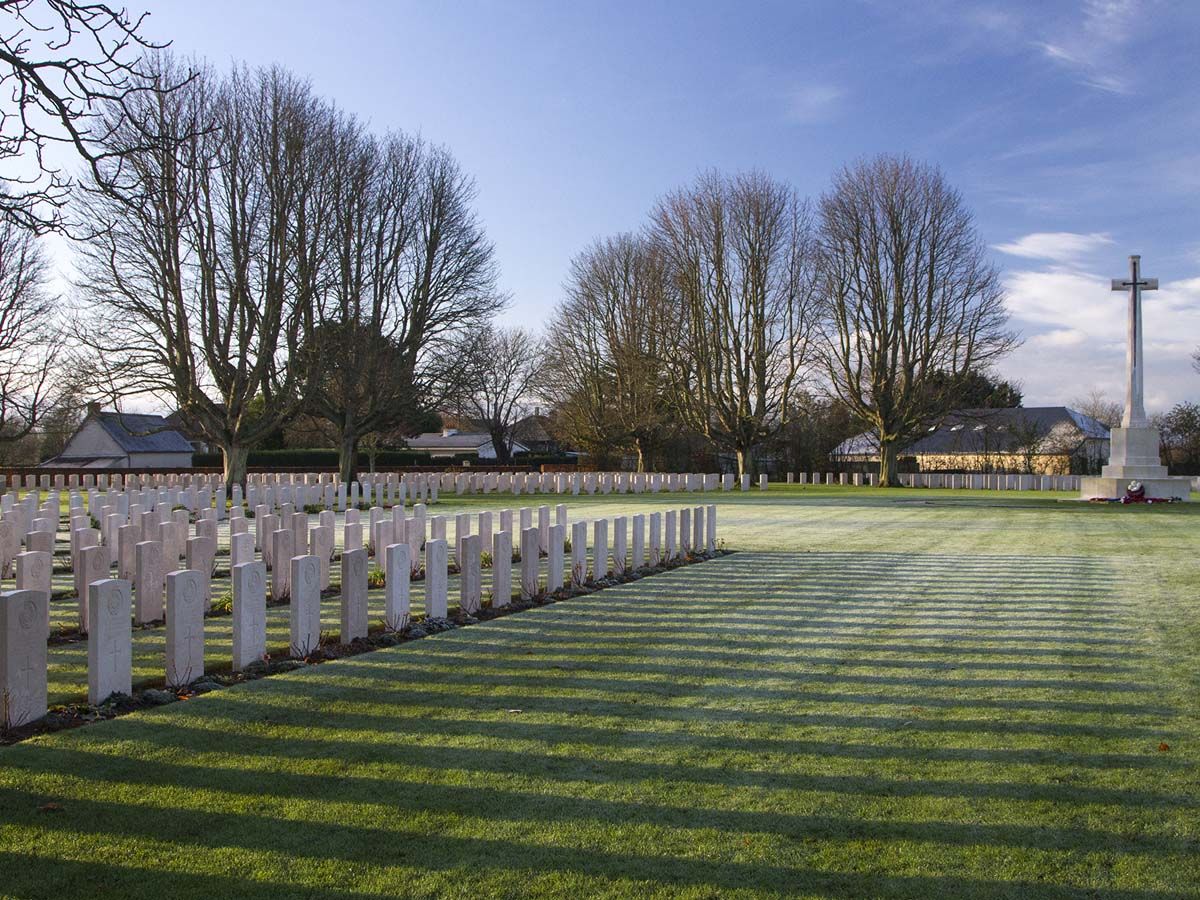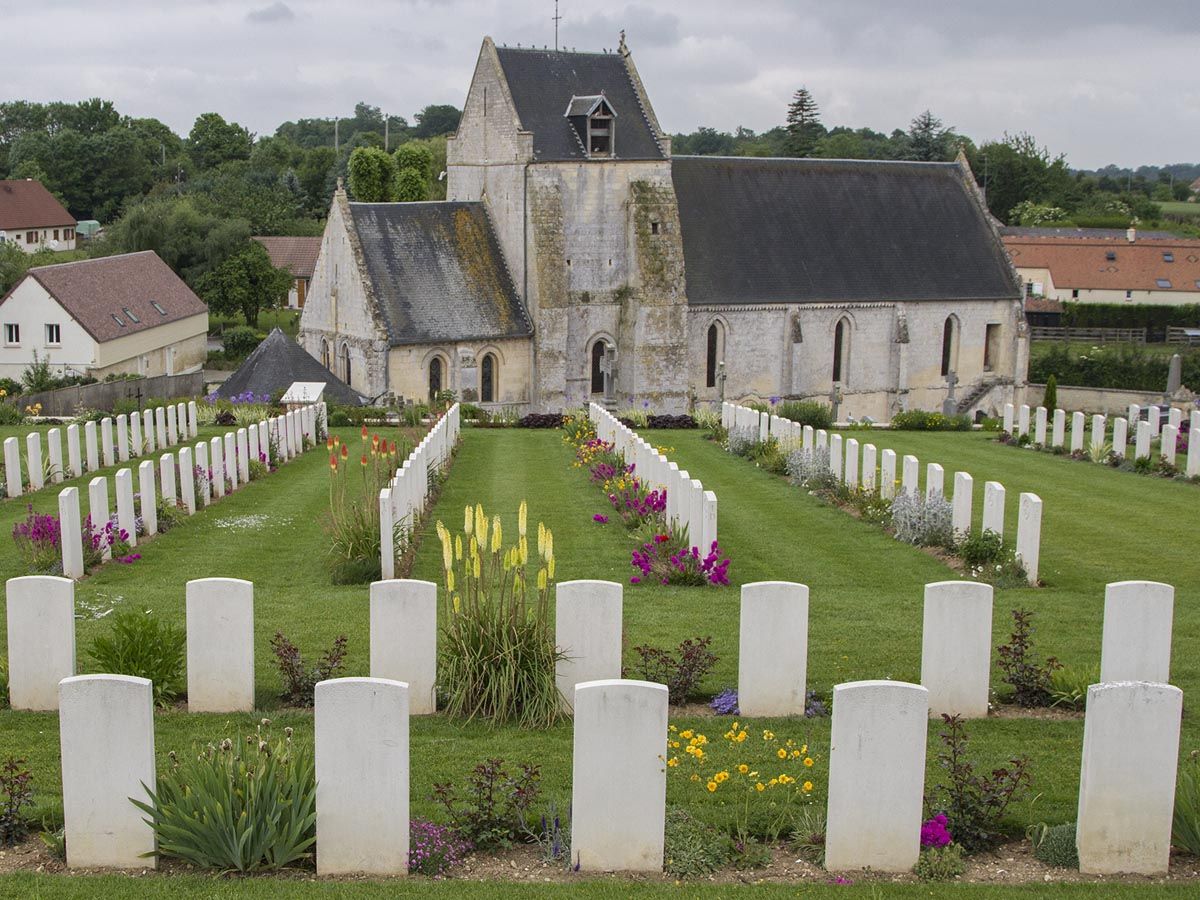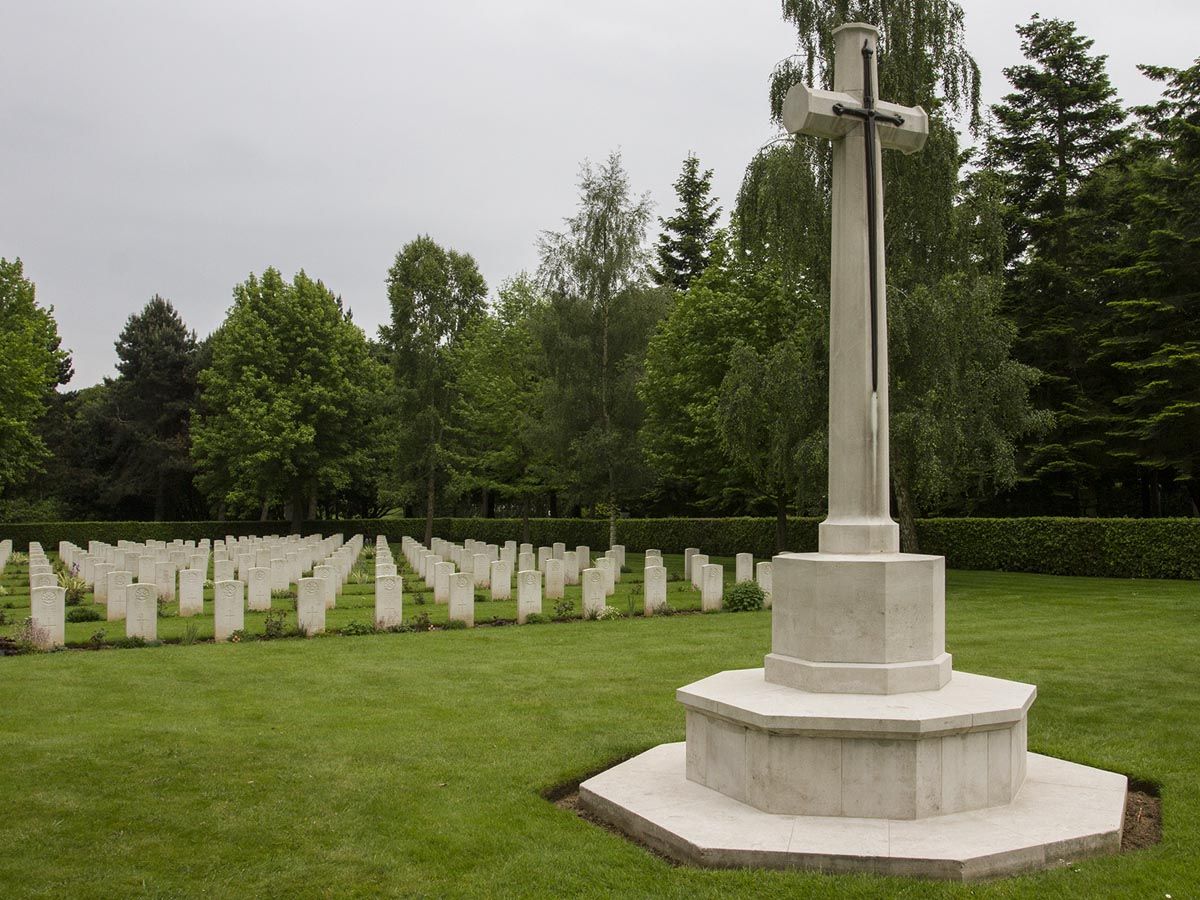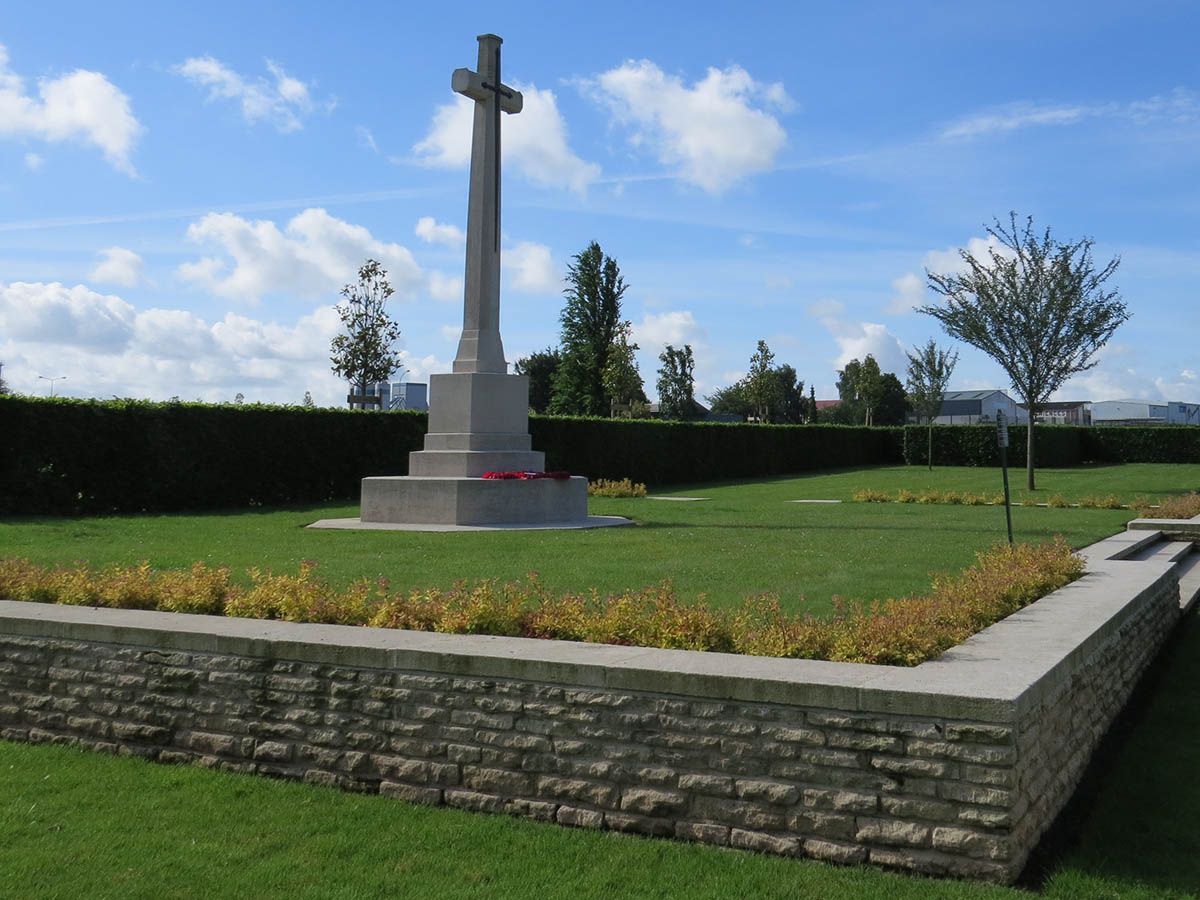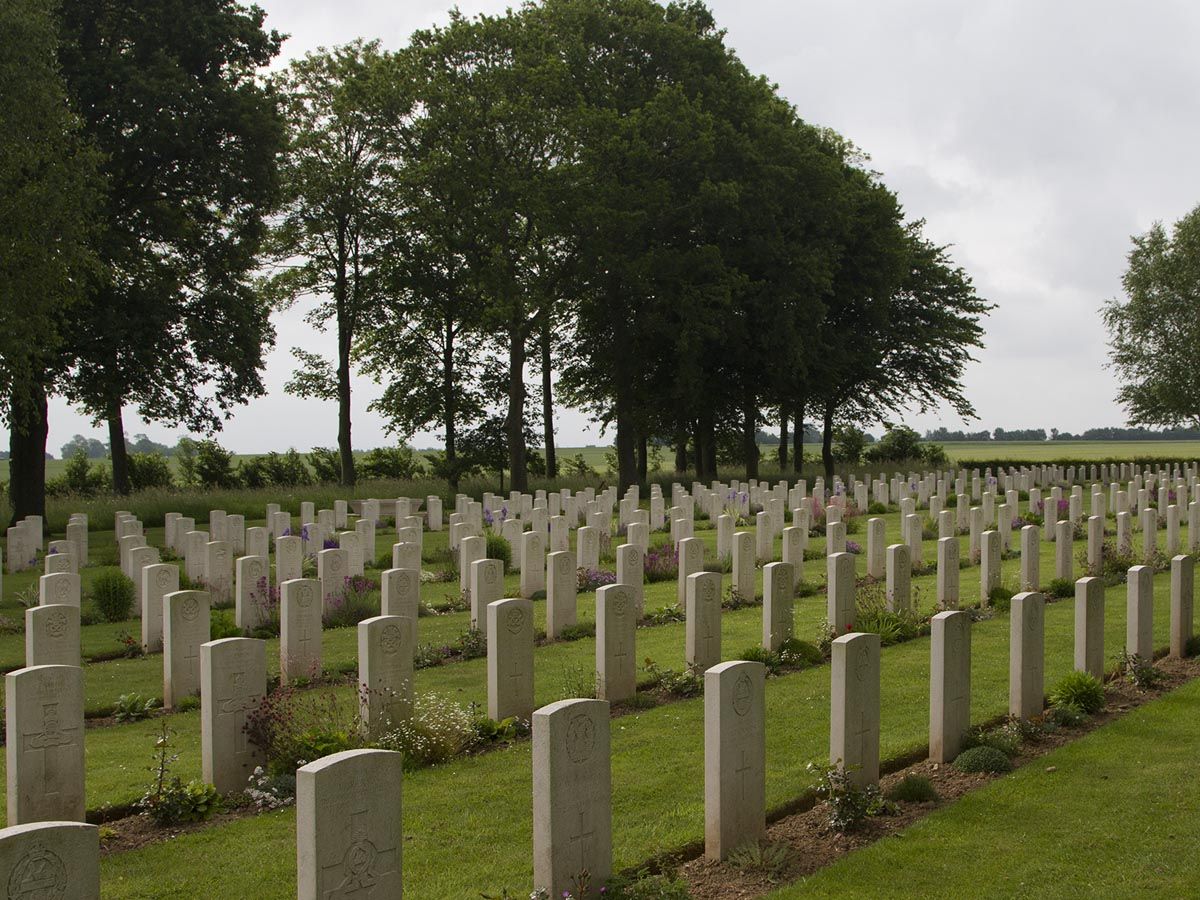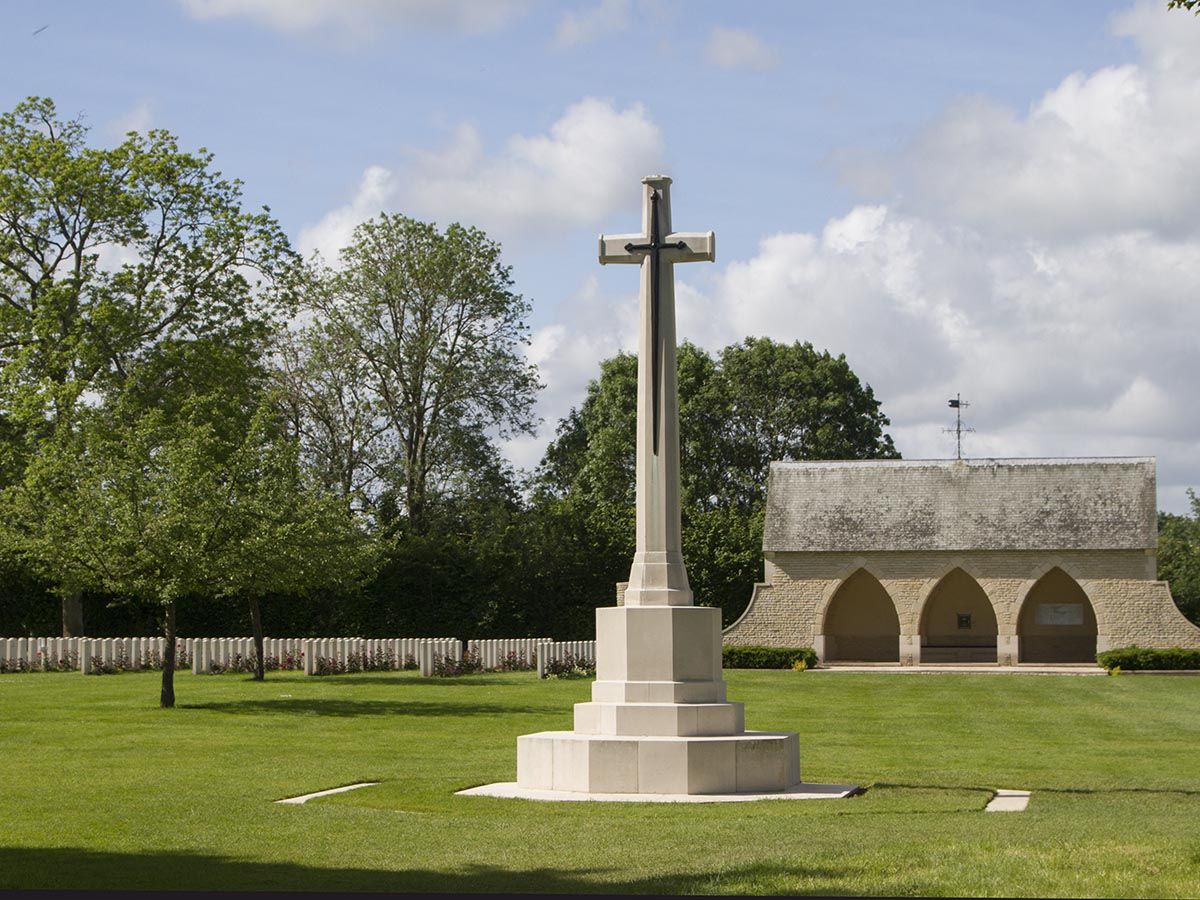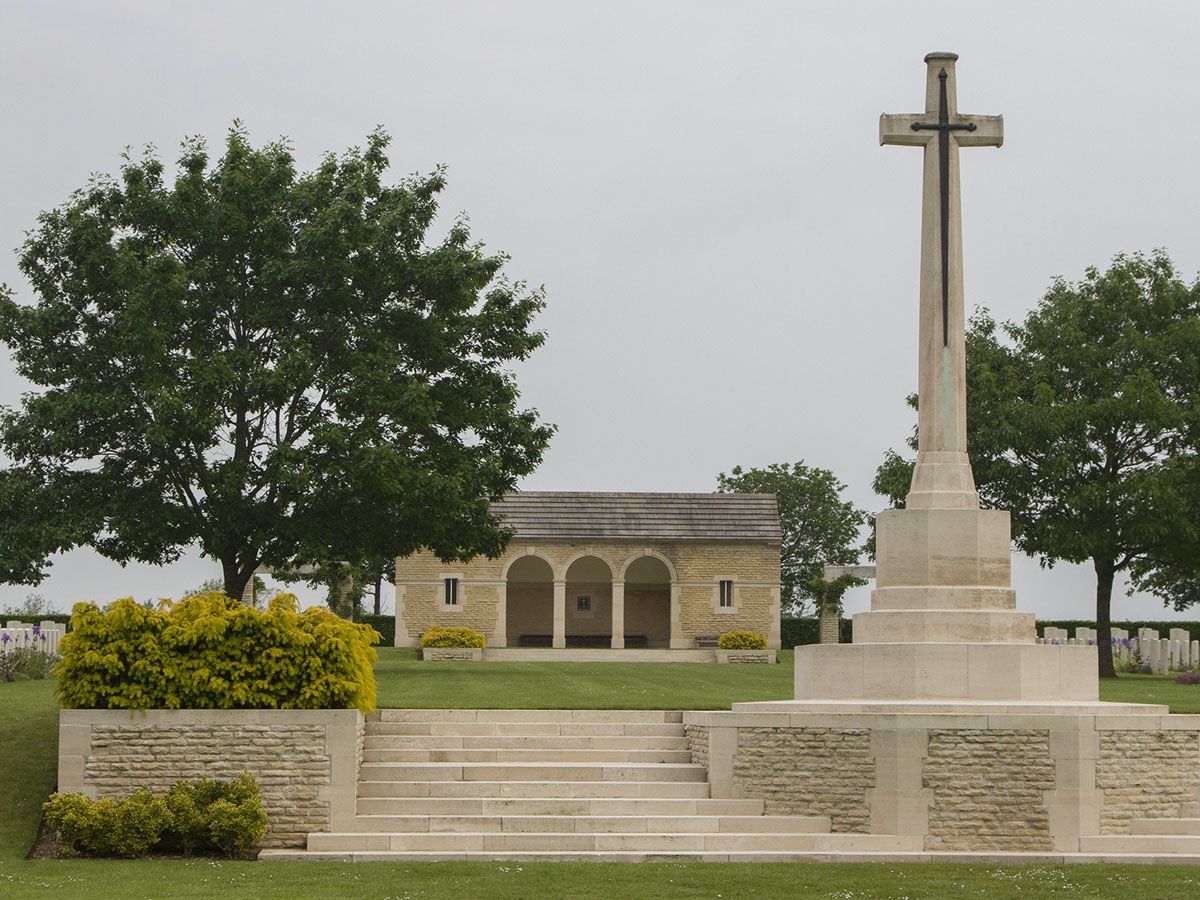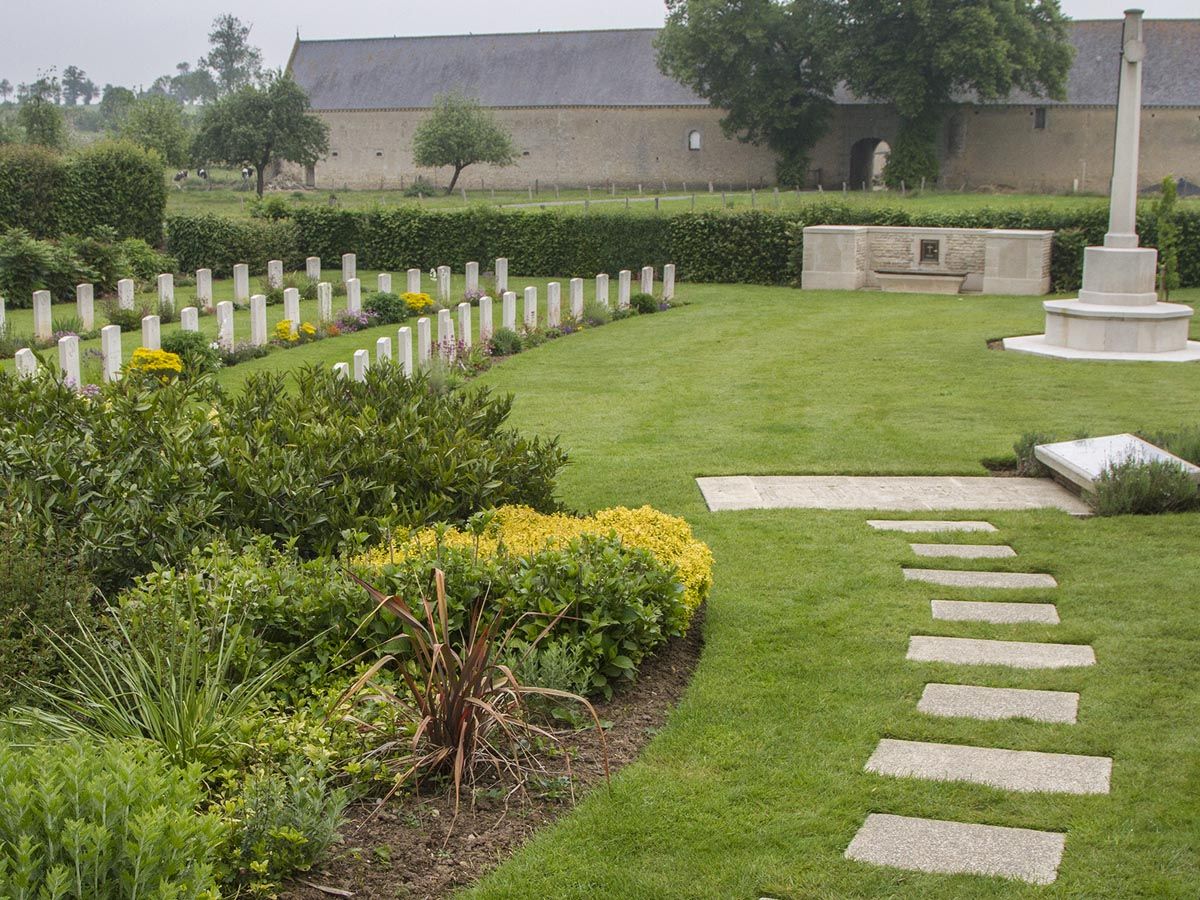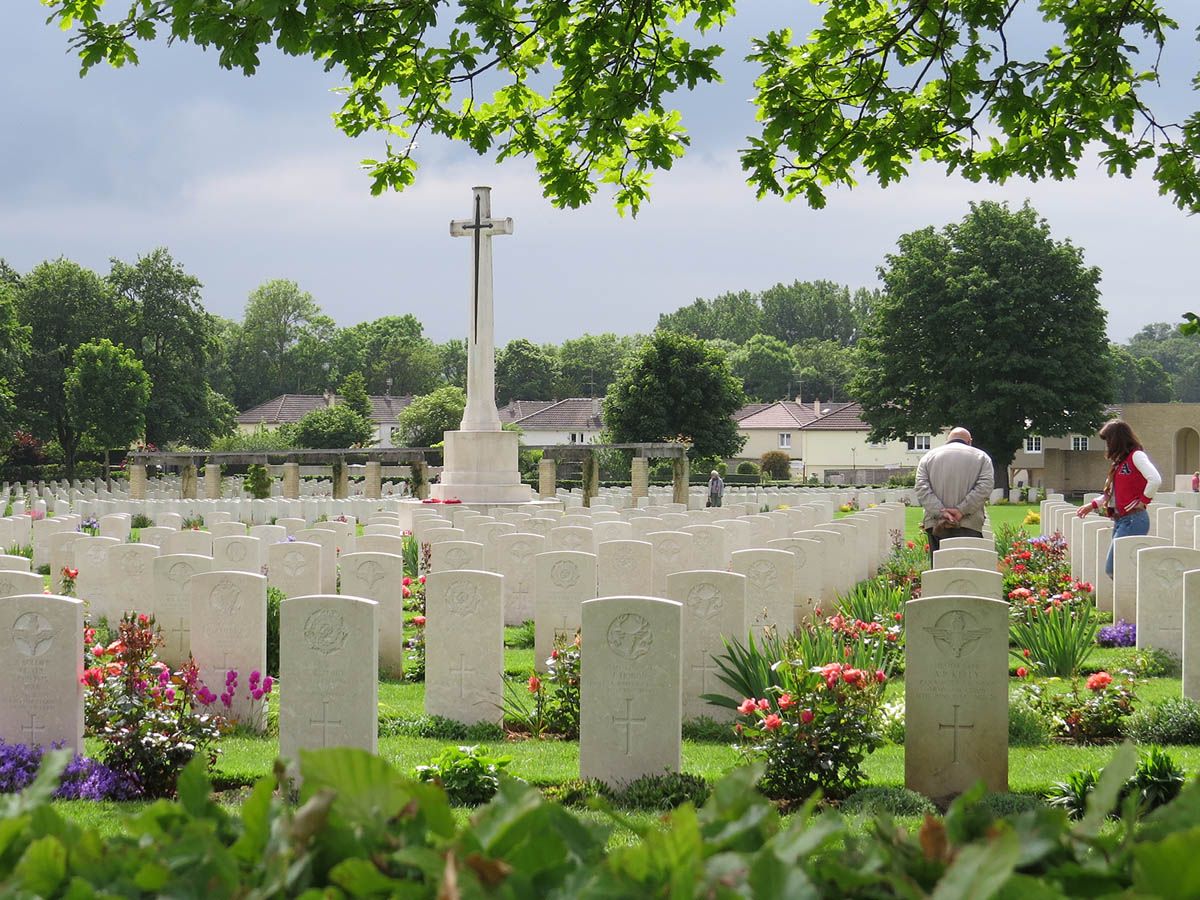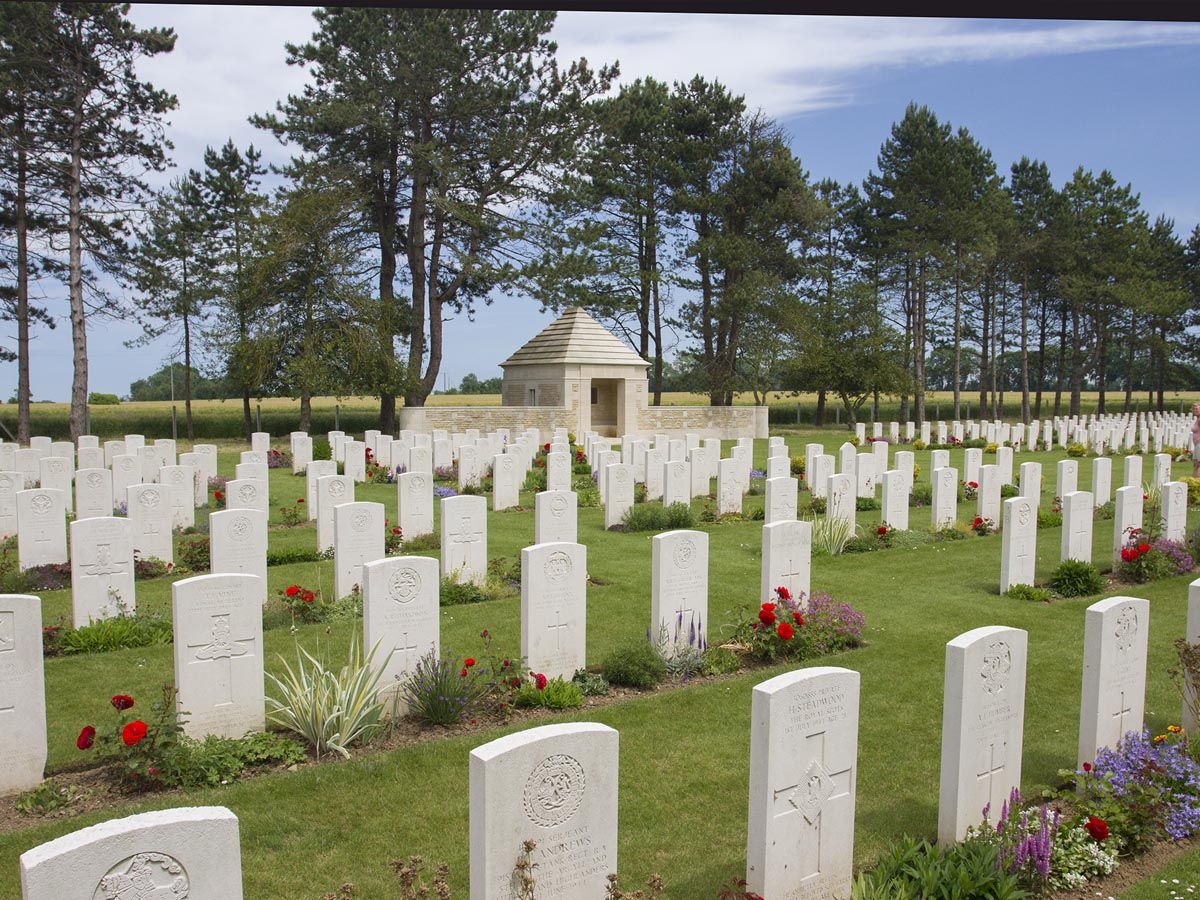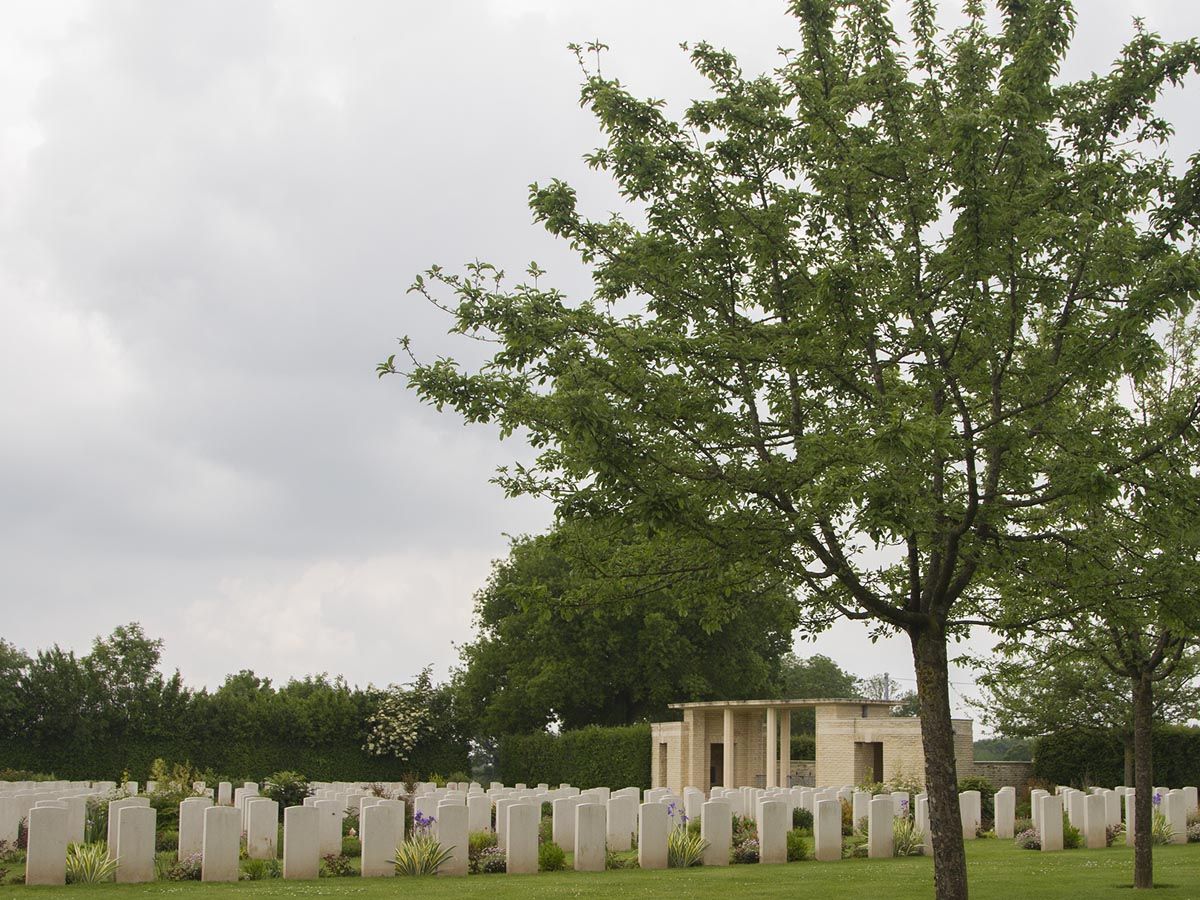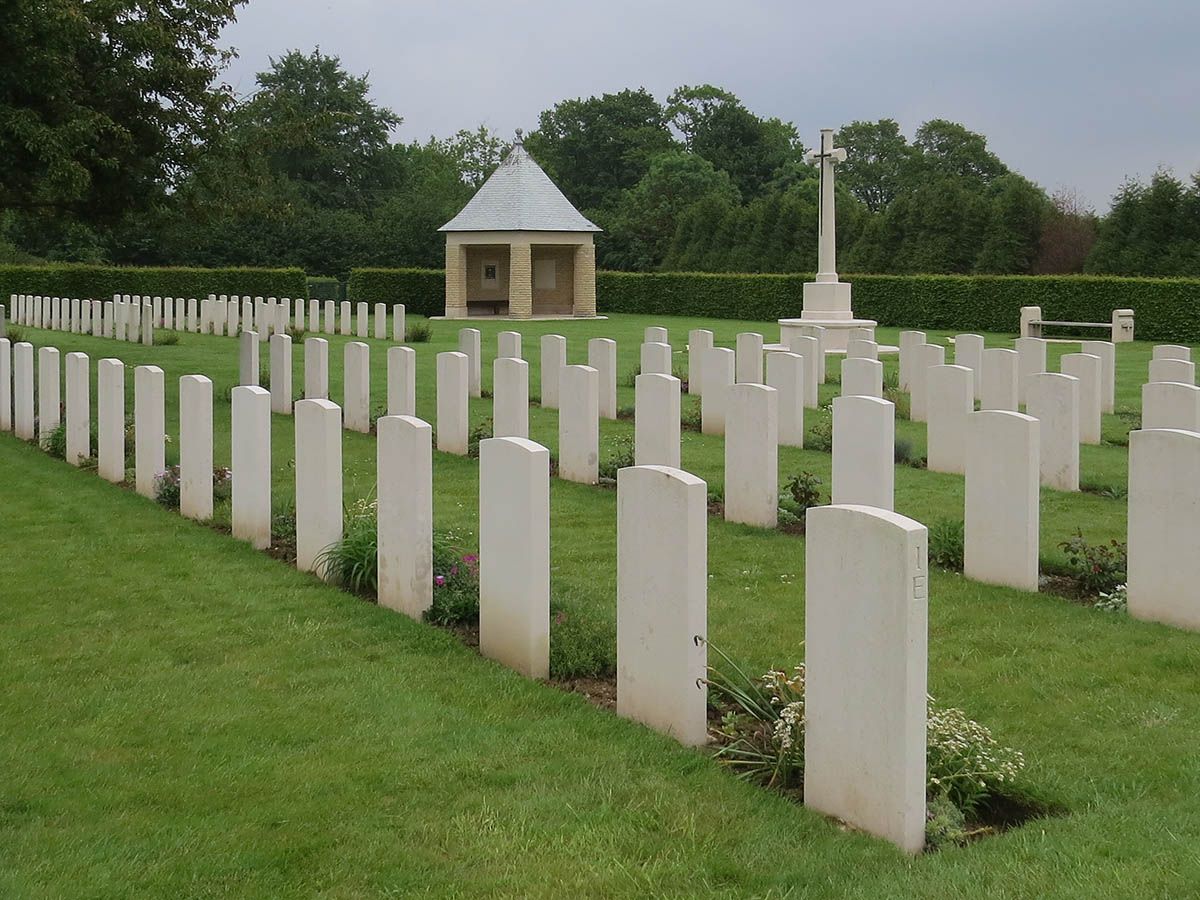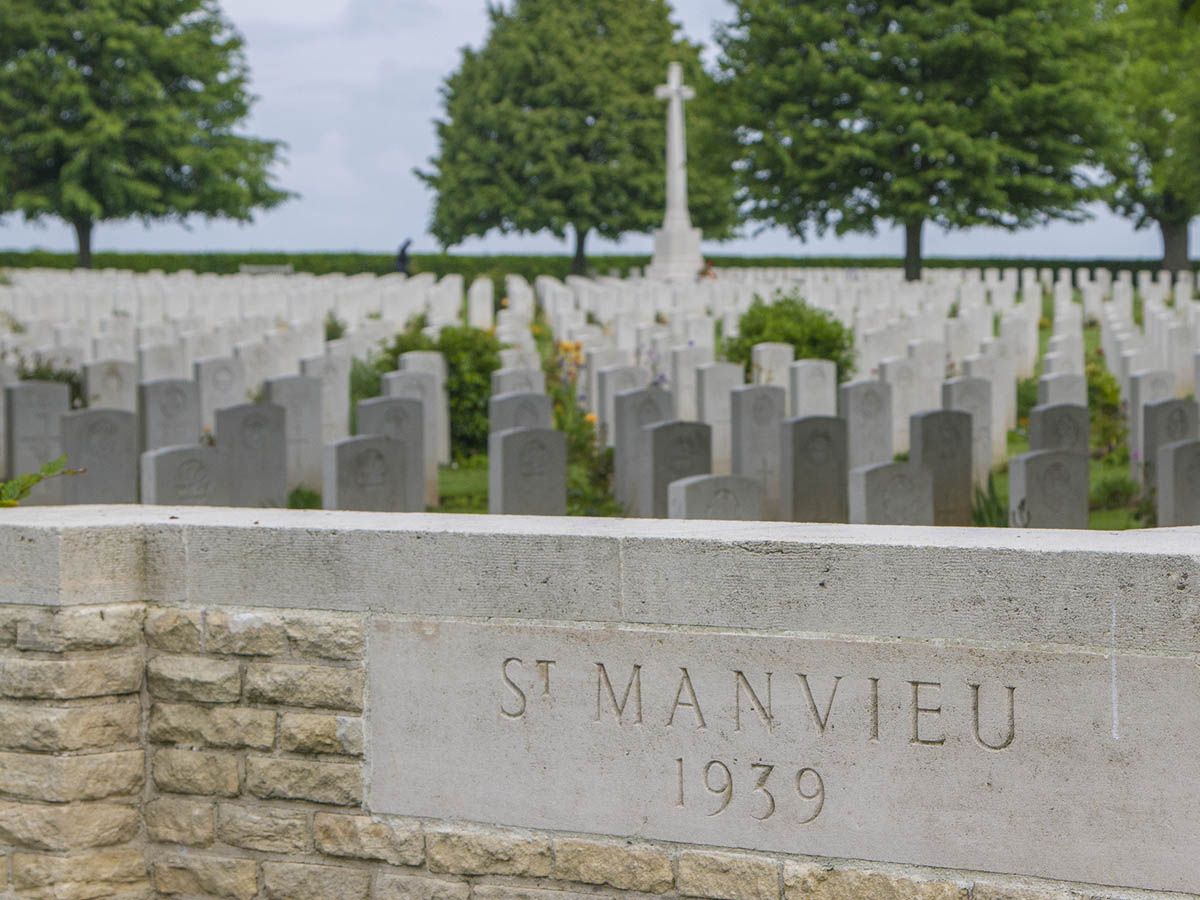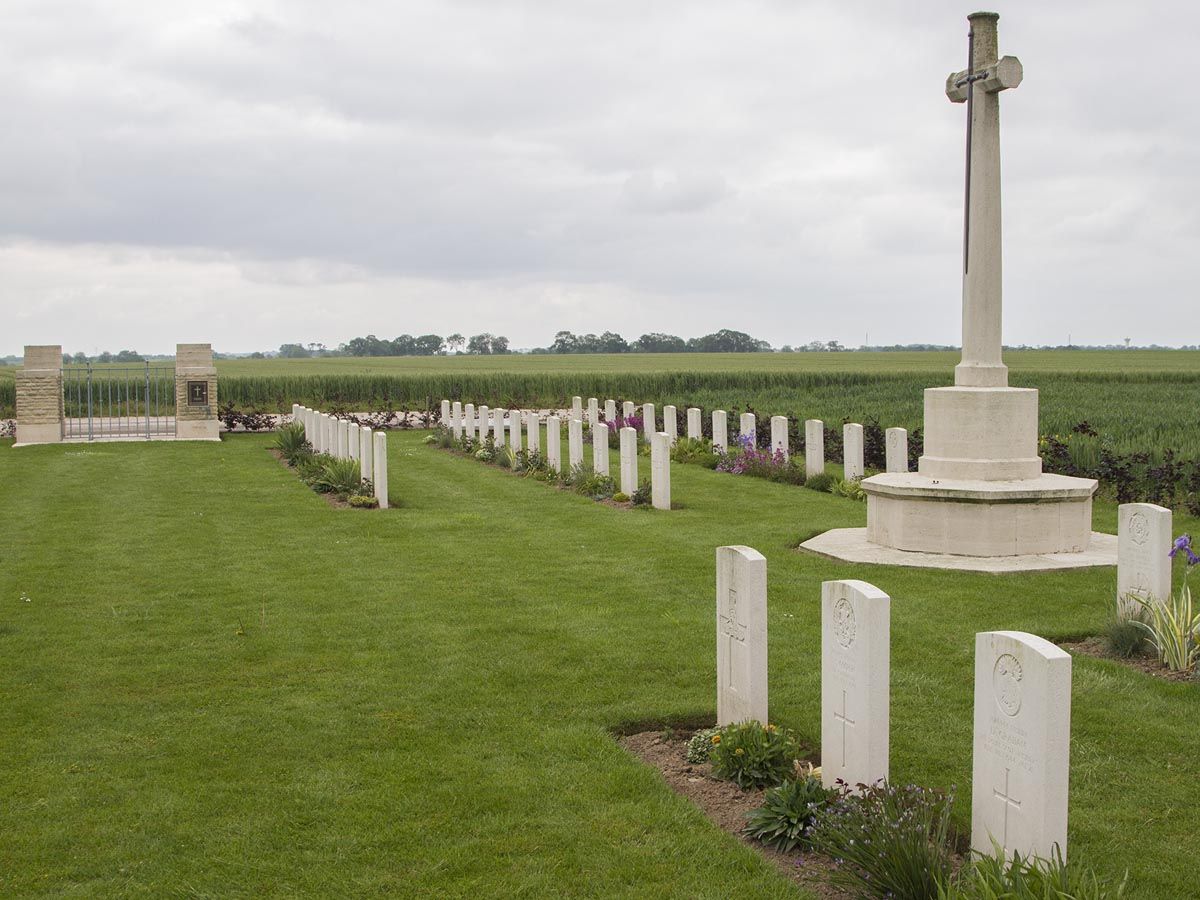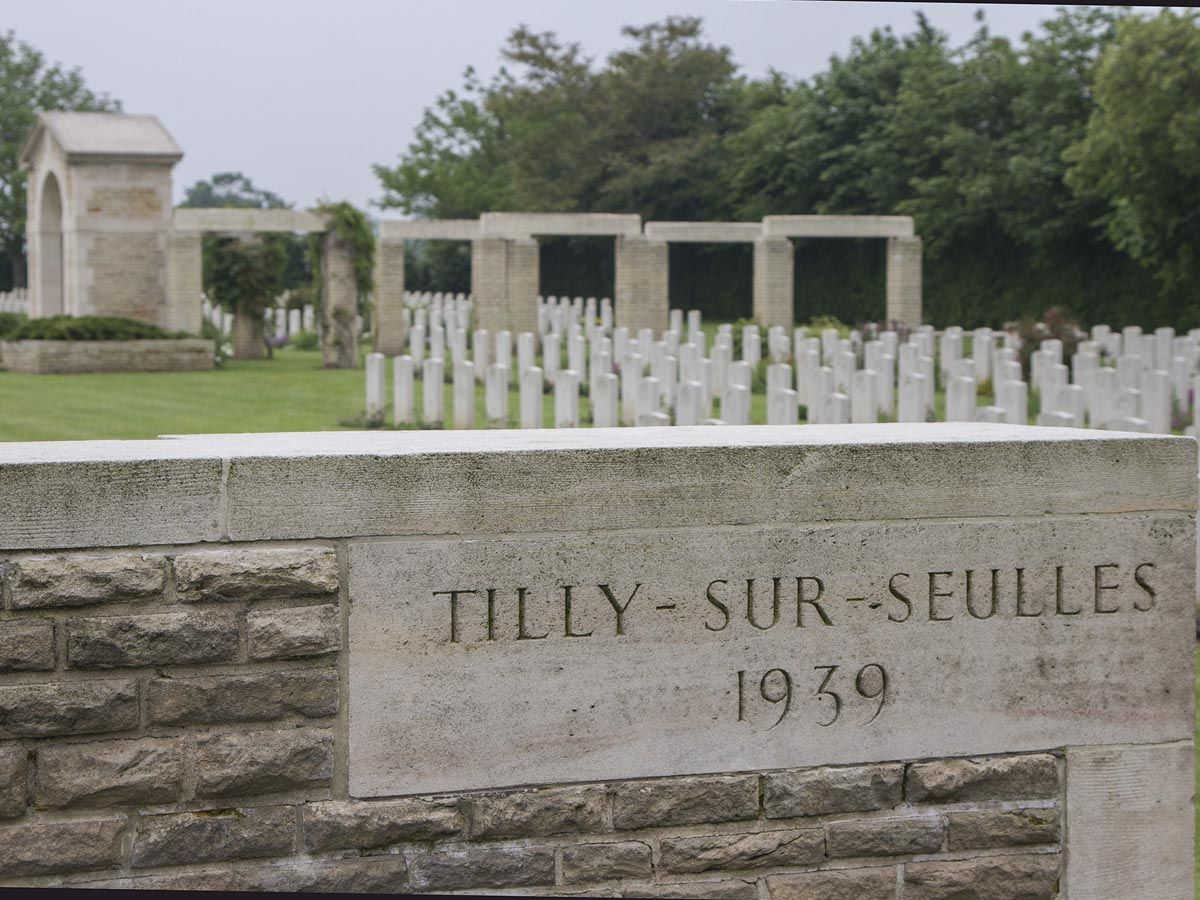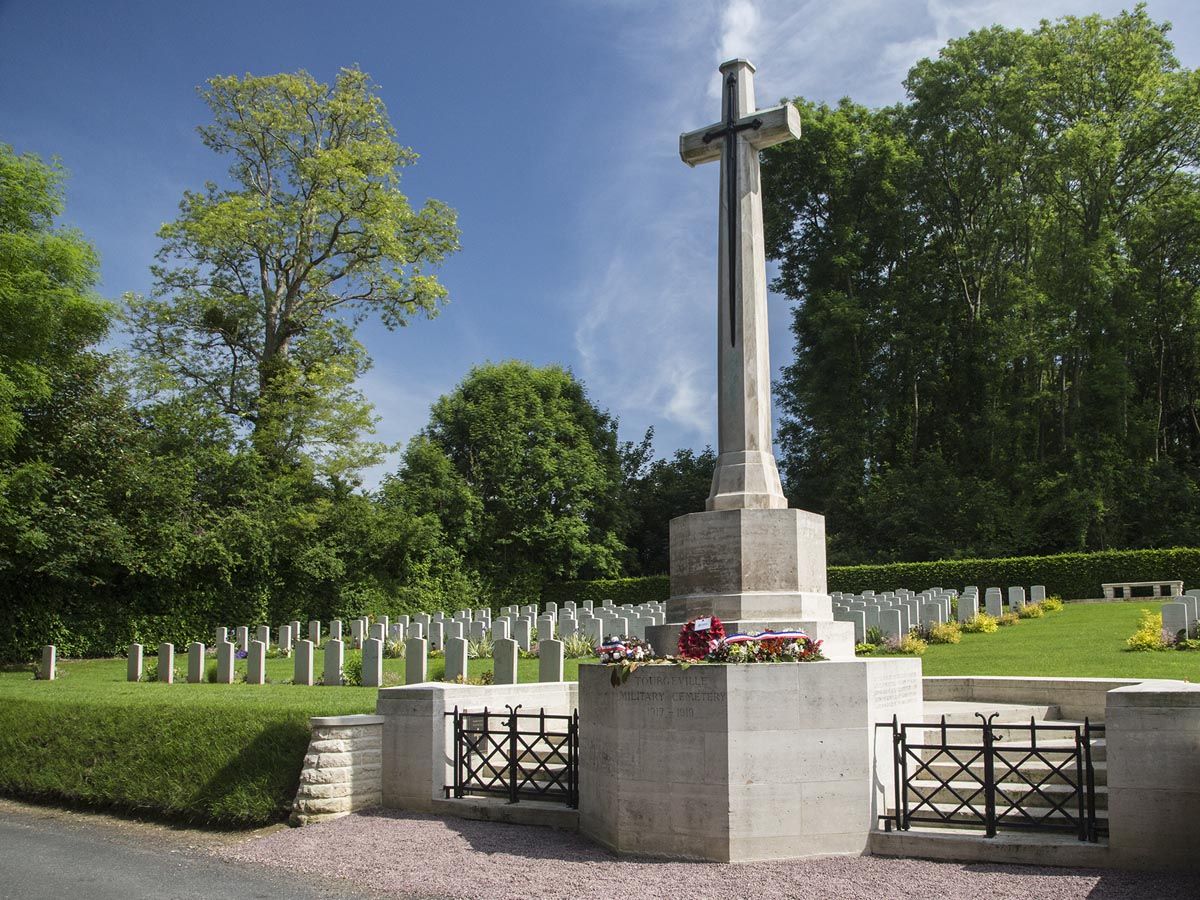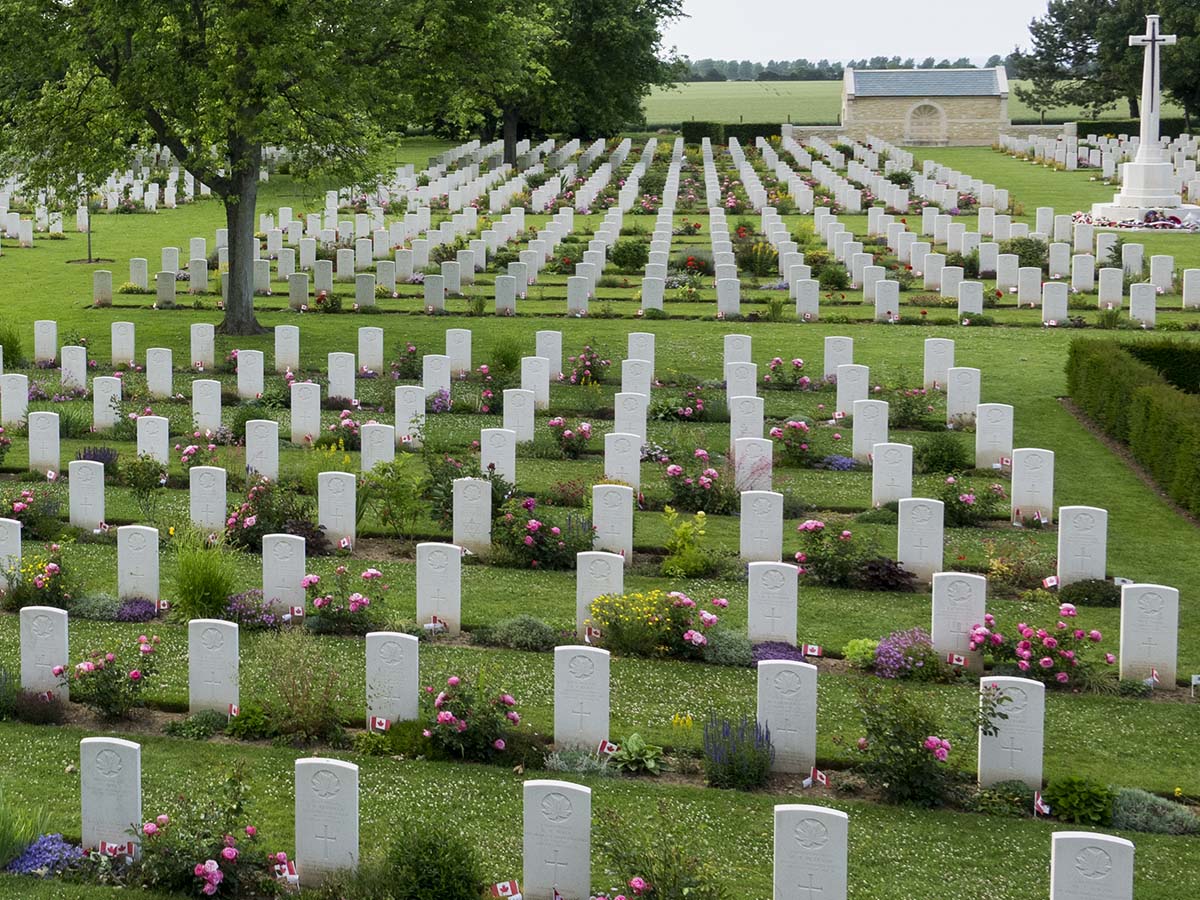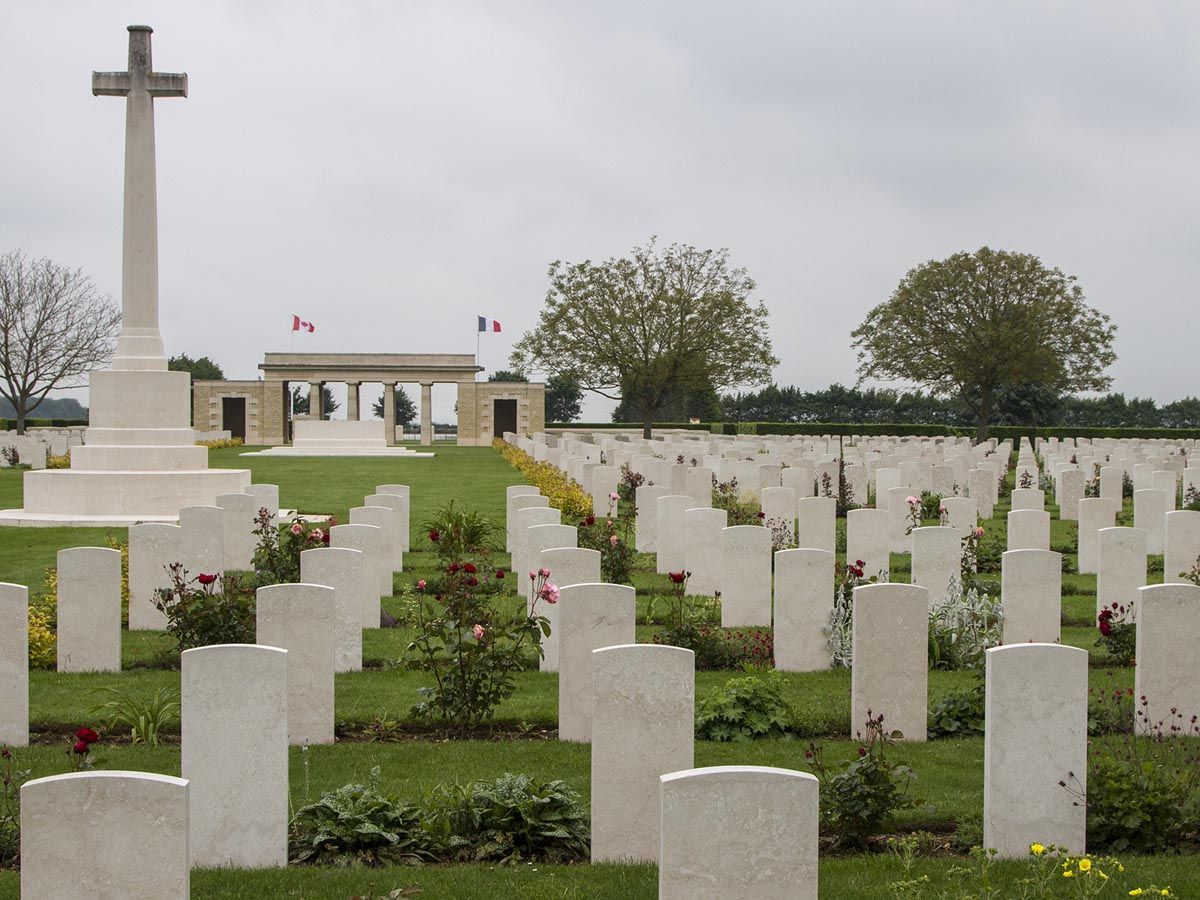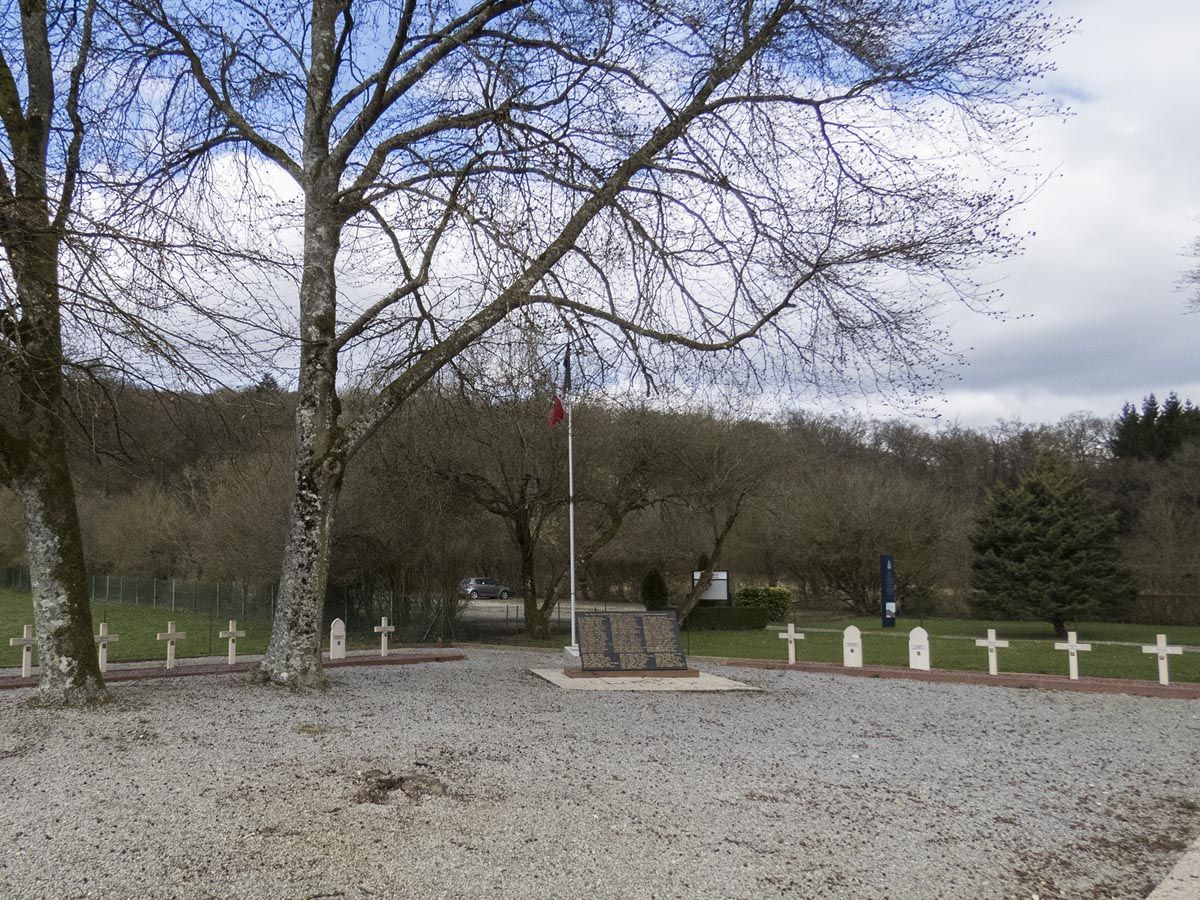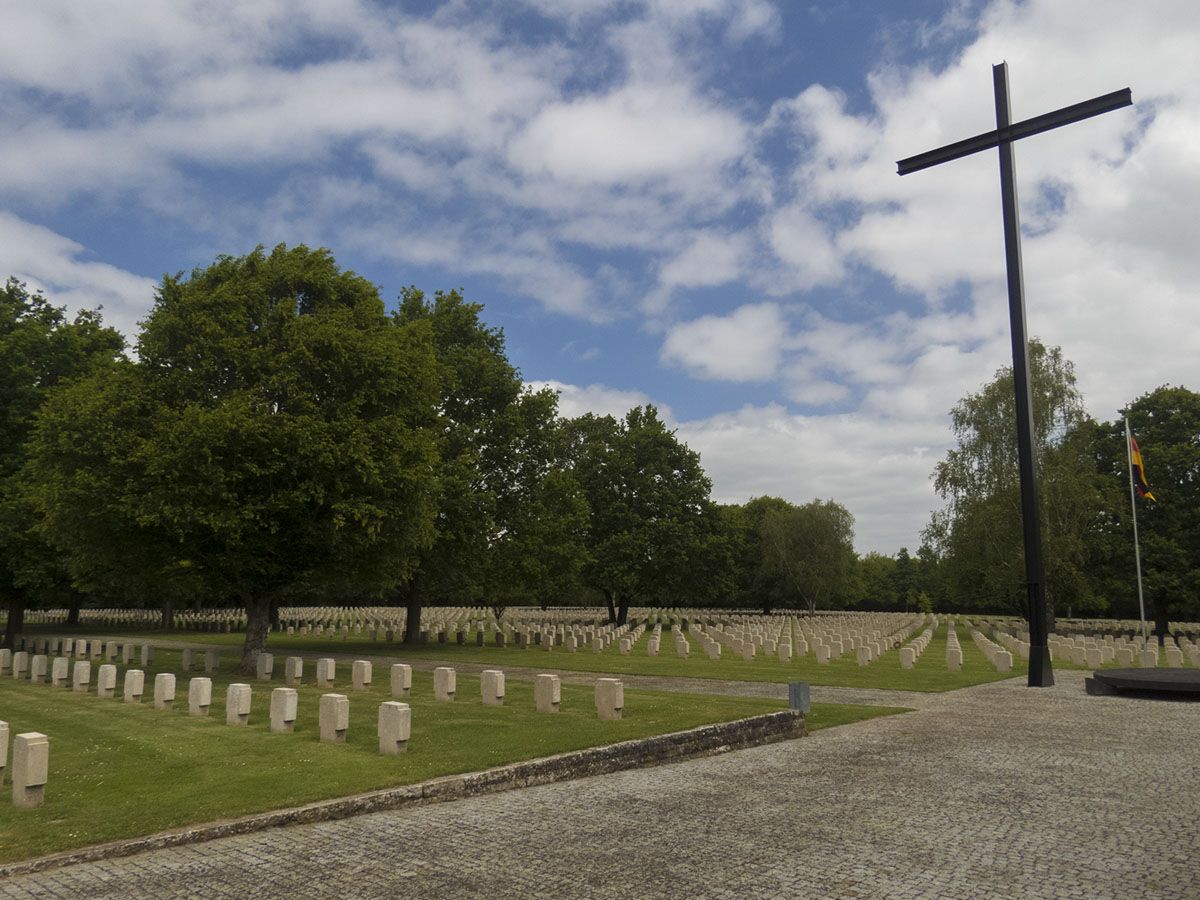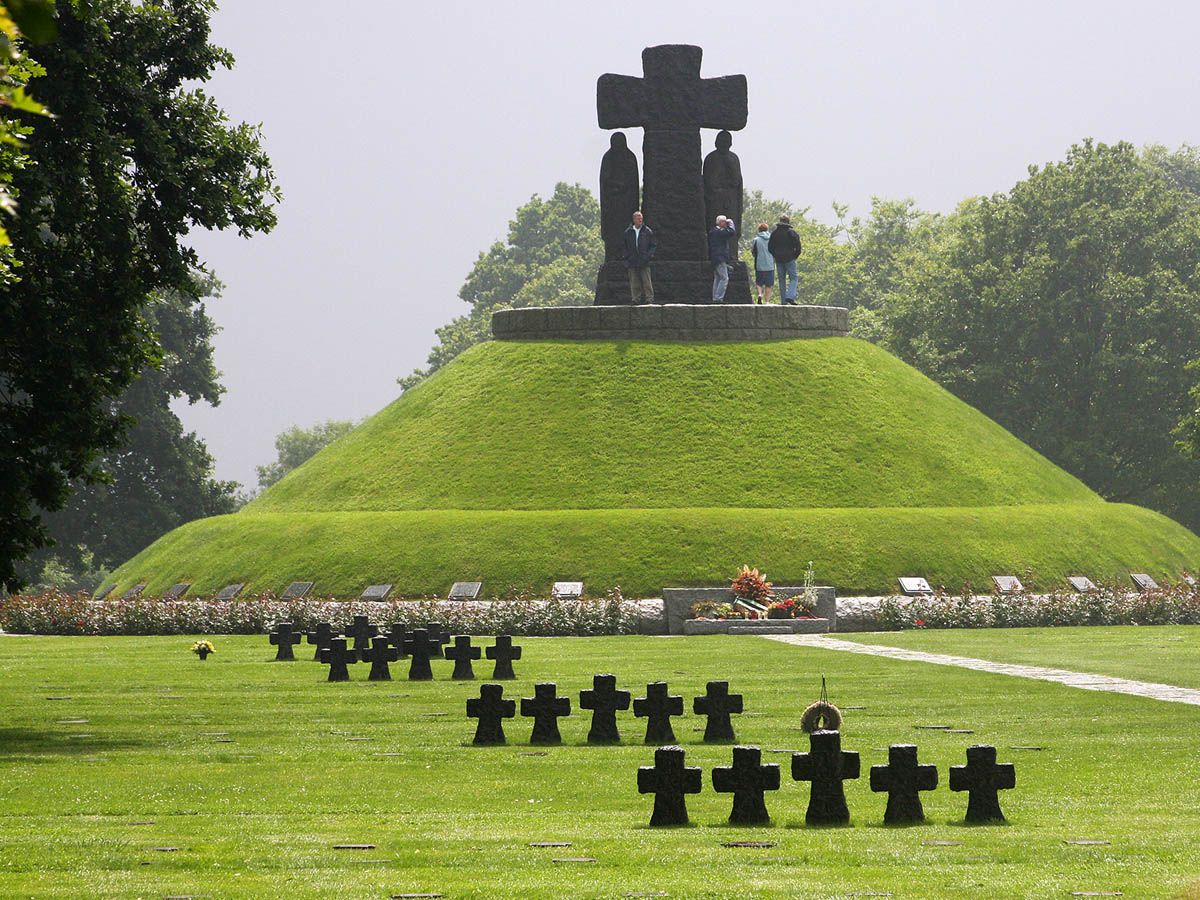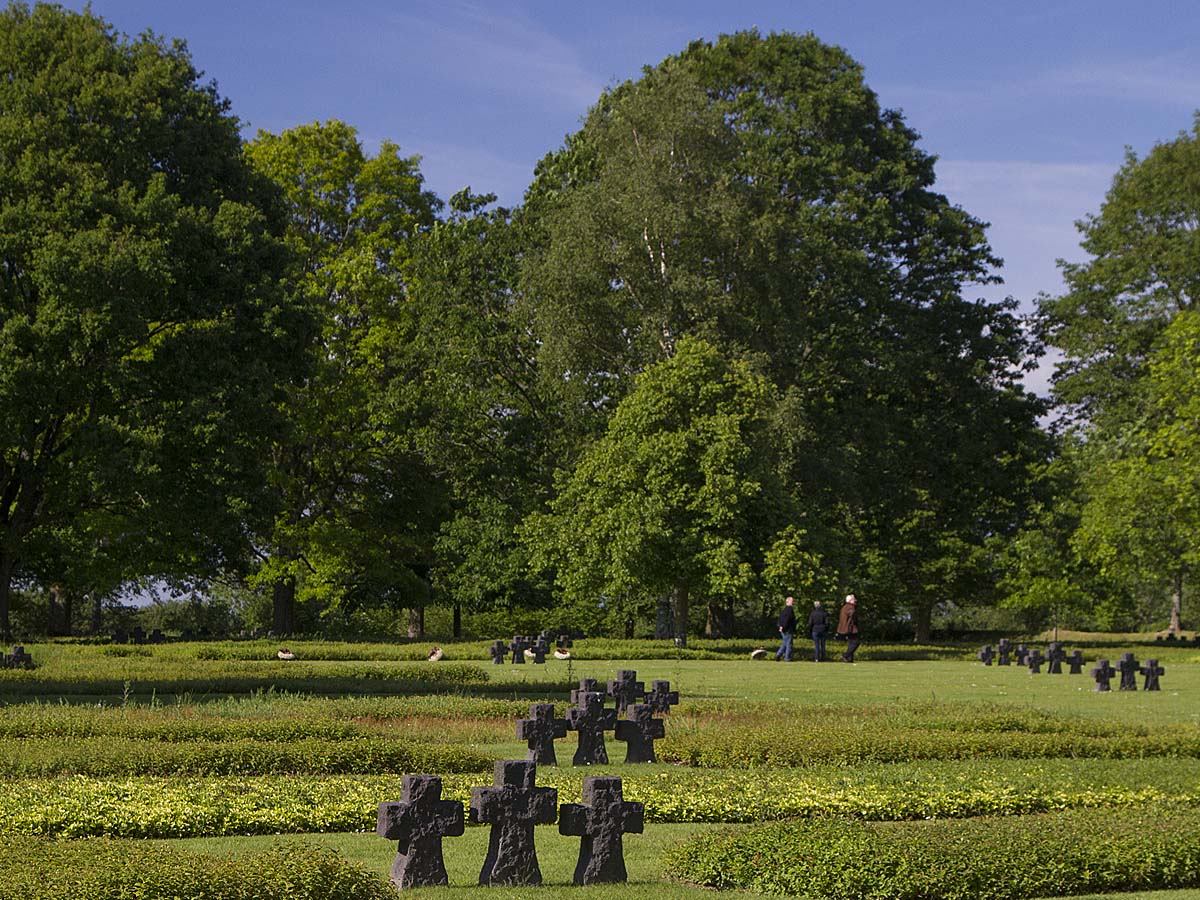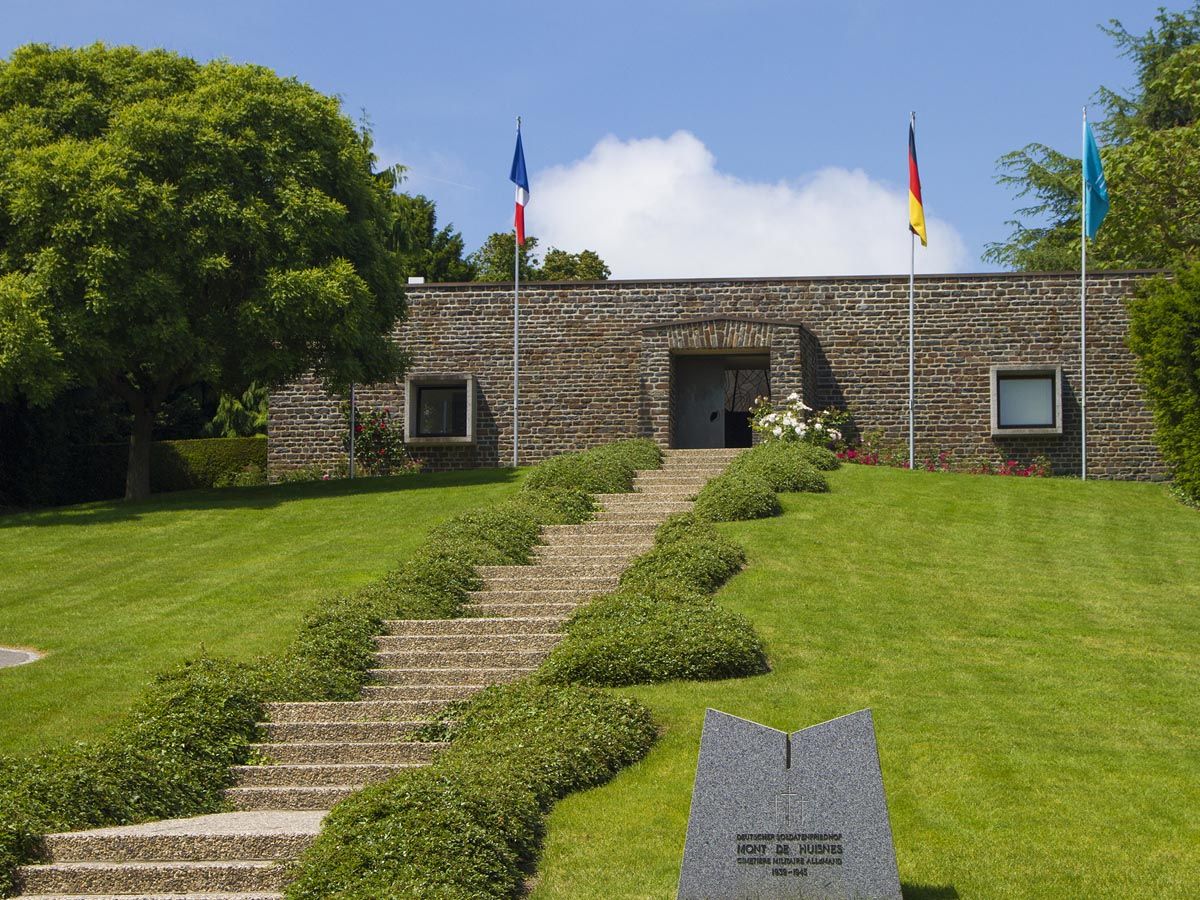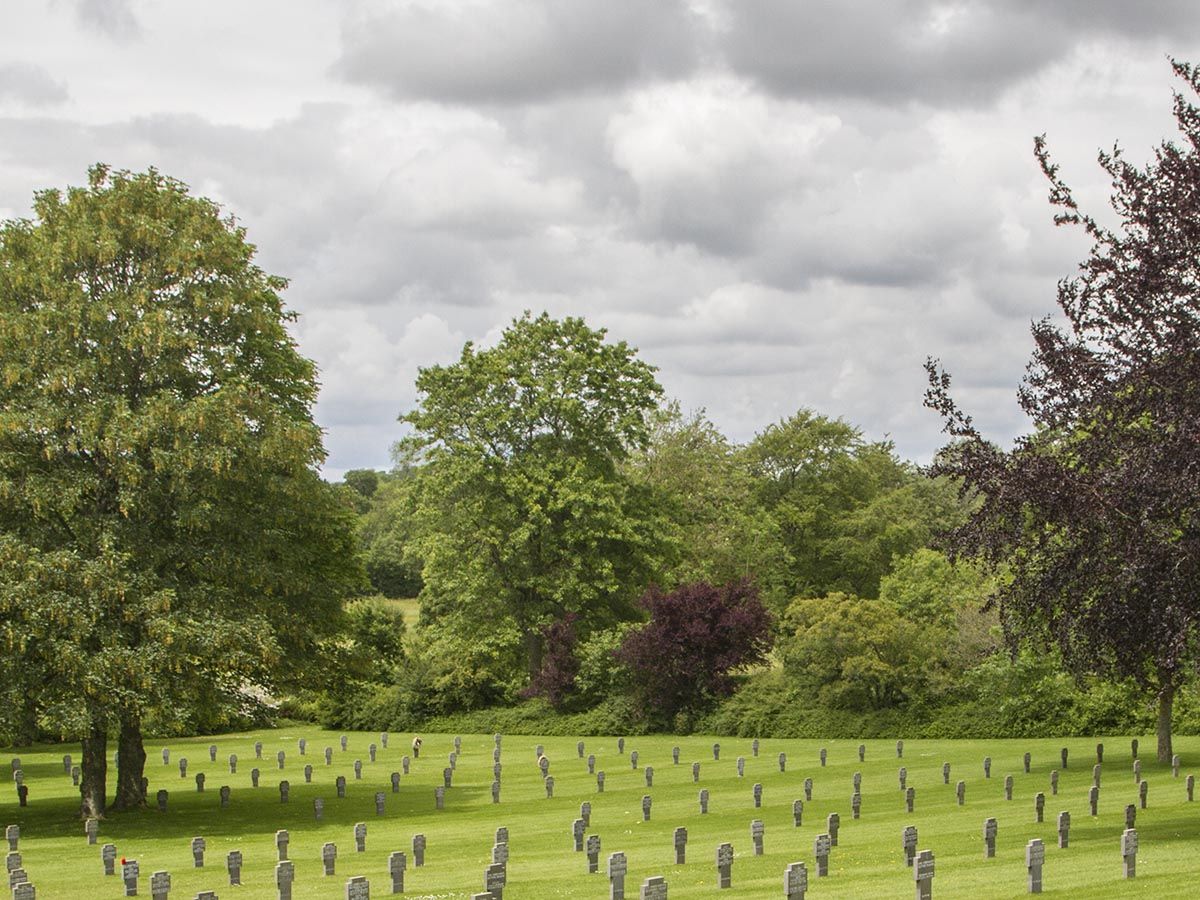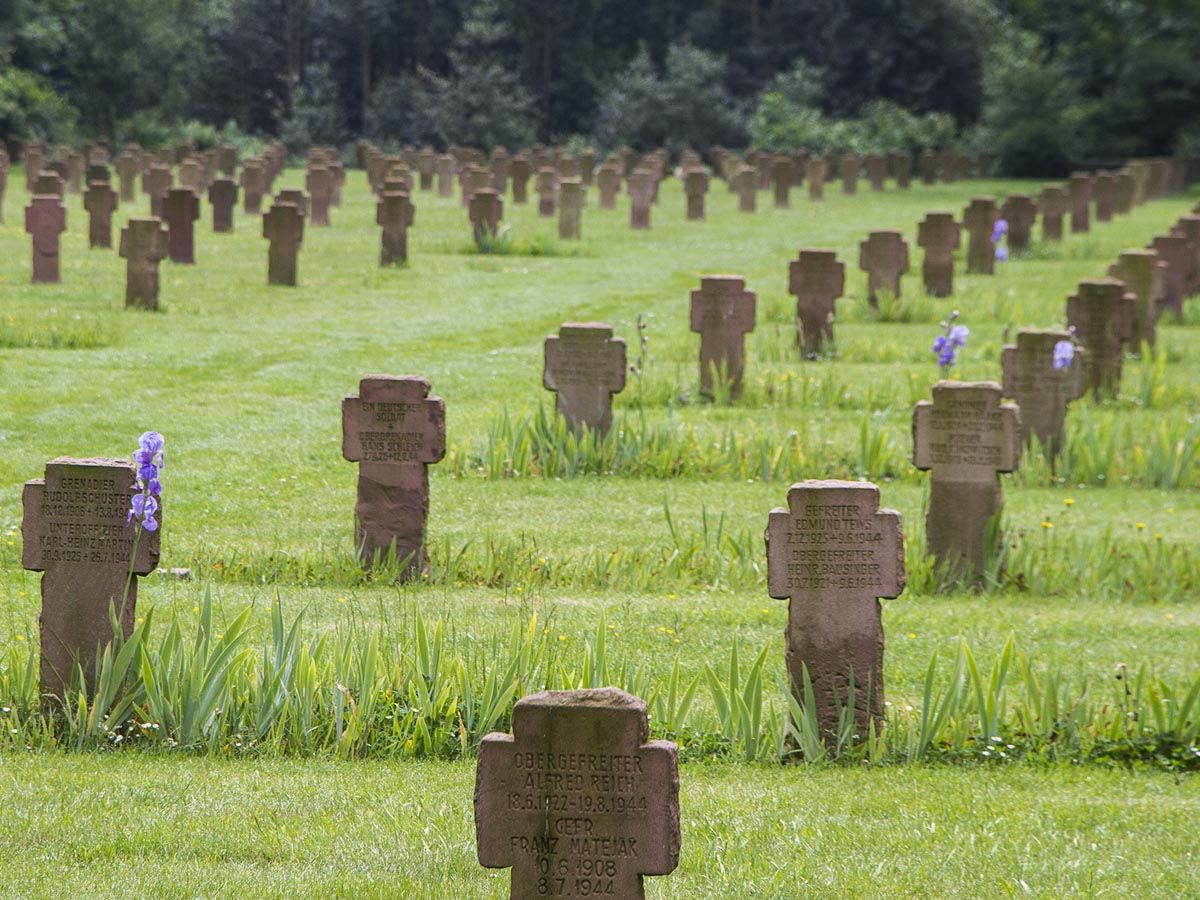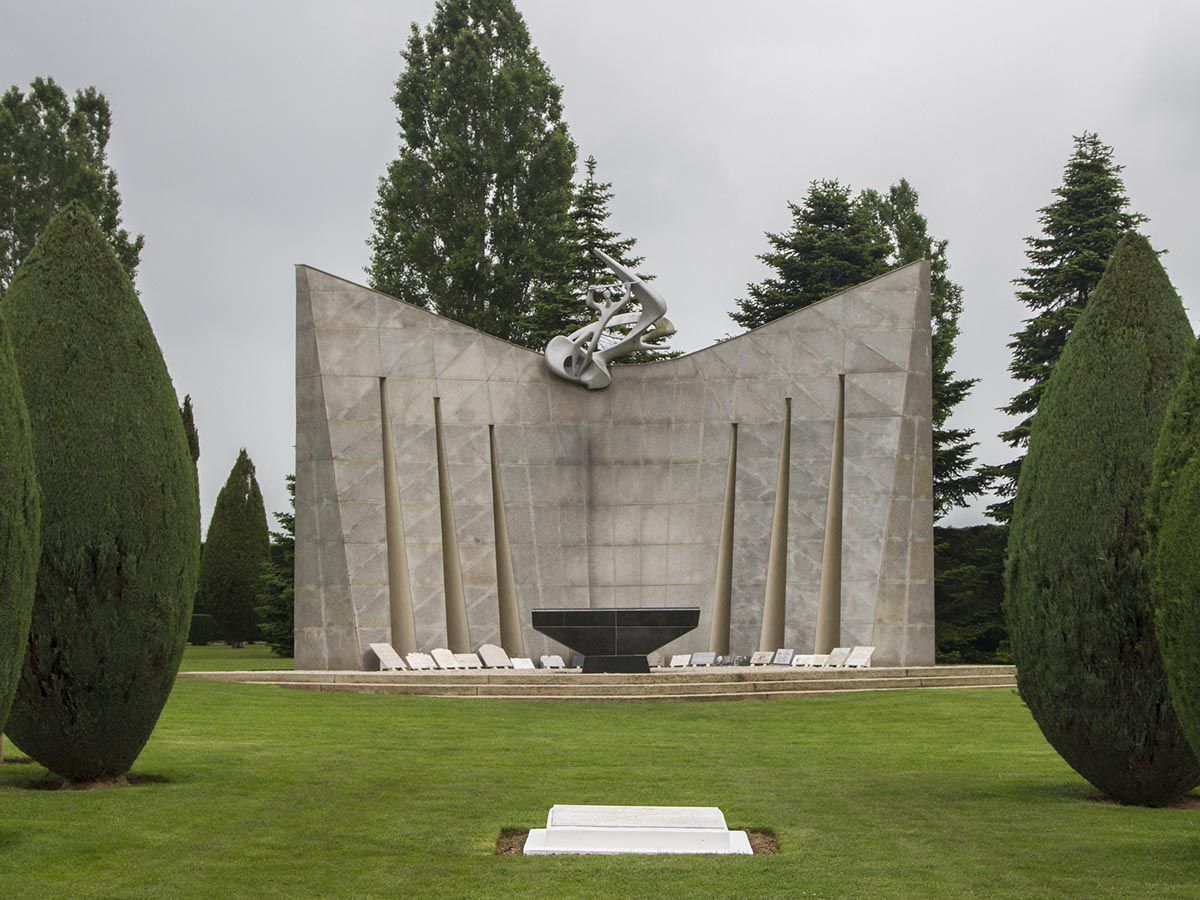Nestled about 9 kilometers northeast of Caen, Ranville War Cemetery offers a moving tribute to those who fought in the Second World War. This peaceful resting place contains over 2,200 Commonwealth burials and 330 German graves, making it an important site for remembering both allies and enemies who lost their lives during the Normandy campaign. The cemetery’s location near Ranville village marks it as a historically significant spot—it was the first village in France to be liberated by Allied forces on D-Day.
When you visit, take time to wander through the immaculately kept grounds. The cemetery’s quiet dignity speaks volumes about the human cost of war while inspiring thoughts of peace. Don’t miss the nearby churchyard, which contains additional war graves and provides context to the area’s pivotal role in the liberation of Normandy.
A trip to Ranville War Cemetery fits perfectly into a broader exploration of Normandy’s D-Day sites. You’ll find the cemetery easily by taking the D513 from Caen and turning left at Herouvillette. The well-maintained grounds welcome visitors looking to pay respects and learn about the brave soldiers who fought for freedom on these shores.
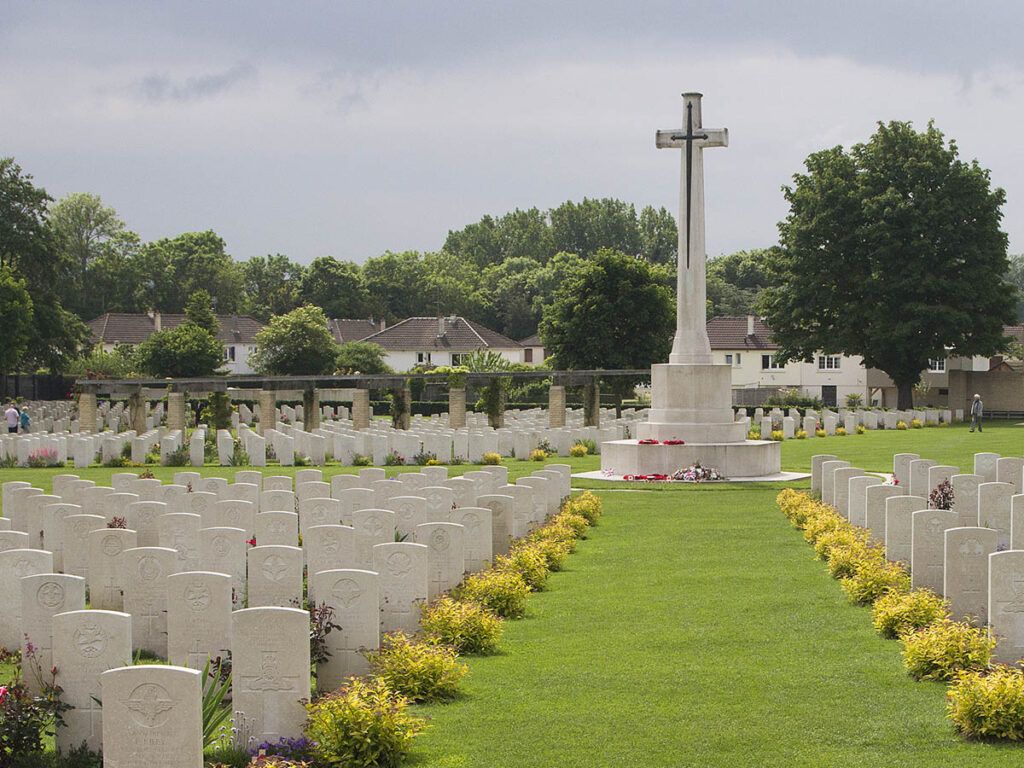
History and Significance of Ranville War Cemetery
Ranville War Cemetery stands as a solemn reminder of the sacrifice made by Allied forces during the D-Day landings and subsequent Battle of Normandy. This hallowed ground tells a powerful story of courage and the high cost of liberation.
Fallen Heroes and D-Day Connection
The cemetery contains 2,236 Commonwealth burials from World War II, with 90 of them unidentified. You’ll also find 323 German graves here, showing how this final resting place honors fallen soldiers from both sides of the conflict.
Many of these brave souls lost their lives during the early stages of the Normandy invasion. When you walk among the neat rows of headstones, you’re witnessing the final chapter for numerous paratroopers and glider-borne troops who were among the first to land on French soil during Operation Overlord.
The majority of burials are British soldiers who made the ultimate sacrifice in June 1944. Their presence here creates a powerful connection to that pivotal moment when the tide of war began to turn.
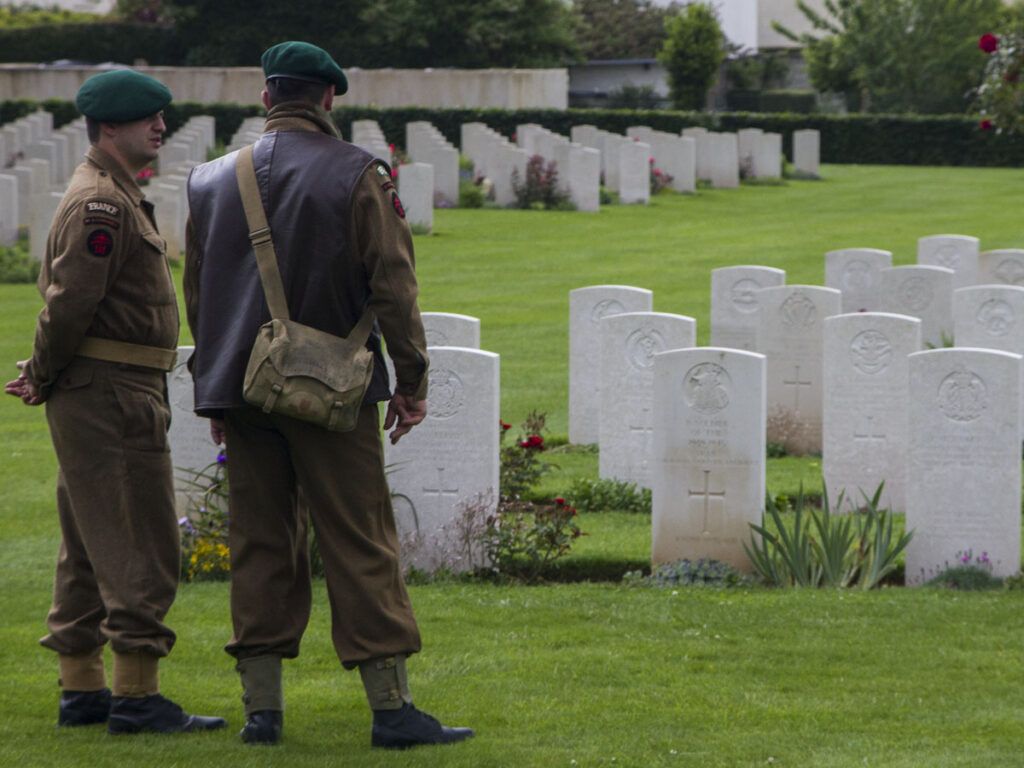
Ranville’s Role During the Normandy Landings
Ranville holds special significance as the first French village to be liberated on D-Day. British 6th Airborne Division paratroopers captured this strategic location in the early hours of June 6, 1944.
The village became a crucial stronghold for Allied forces pushing inland from the beaches. Its bridge over the Caen Canal (now known as Pegasus Bridge) was a key objective that paratroopers seized intact, preventing German reinforcements from reaching the landing areas.
When you visit, you’ll notice how the cemetery’s location isn’t random. It stands near where many of these soldiers fought and fell. The peaceful countryside around you was once the scene of fierce combat as troops established and defended this vital bridgehead.
Ranville continued to serve as an important medical and supply area throughout the summer of 1944 as the Battle of Normandy unfolded.
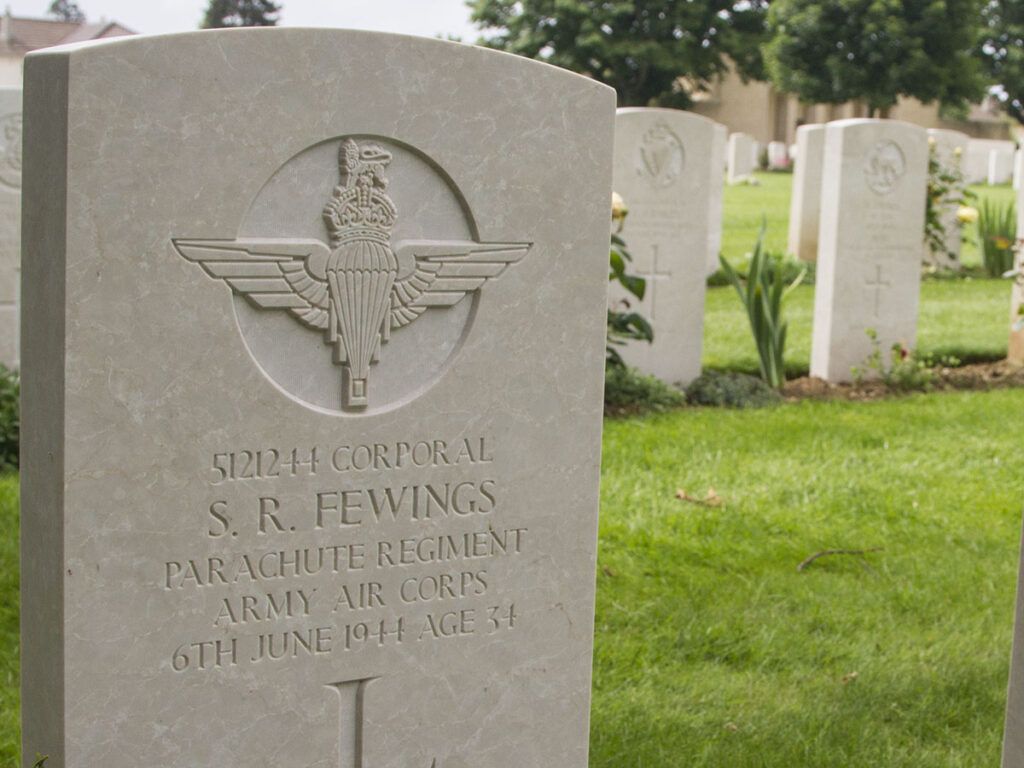
Planning Your Visit
Planning a trip to Ranville War Cemetery requires some preparation to make the most of your experience. The cemetery offers a moving tribute to those who fell during the Battle of Normandy, and with proper planning, your visit can be both meaningful and convenient.
Best Time to Visit
The cemetery is open year-round, but weather plays a significant role in your experience. Late spring (May-June) and early fall (September) offer the most pleasant conditions with mild temperatures and fewer crowds. These periods allow you to explore the grounds comfortably while reflecting on the historical significance.
Summer months (July-August) bring more visitors, especially around D-Day anniversary events on June 6th. If you visit during this time, arrive early in the morning to avoid crowds.
Winter visits (November-March) provide a solemn, quiet atmosphere but prepare for potentially cold and rainy weather. The stark winter landscape adds a poignant dimension to the experience.
Getting to Ranville
Ranville is located just 8 km northeast of Caen in Normandy, making it easily accessible by various transportation methods. If you’re driving, the cemetery is well signposted from major routes. From Caen, follow signs toward Ouistreham, then Ranville. Ample free parking is available near the cemetery.
Public transportation options include:
- Bus service from Caen (Line 20)
- Taxi service from Caen (approximately €25-30)
Many visitors combine their trip with a visit to Pegasus Bridge, which is just 1 km away. This makes for a logical walking route between these two historically connected sites.
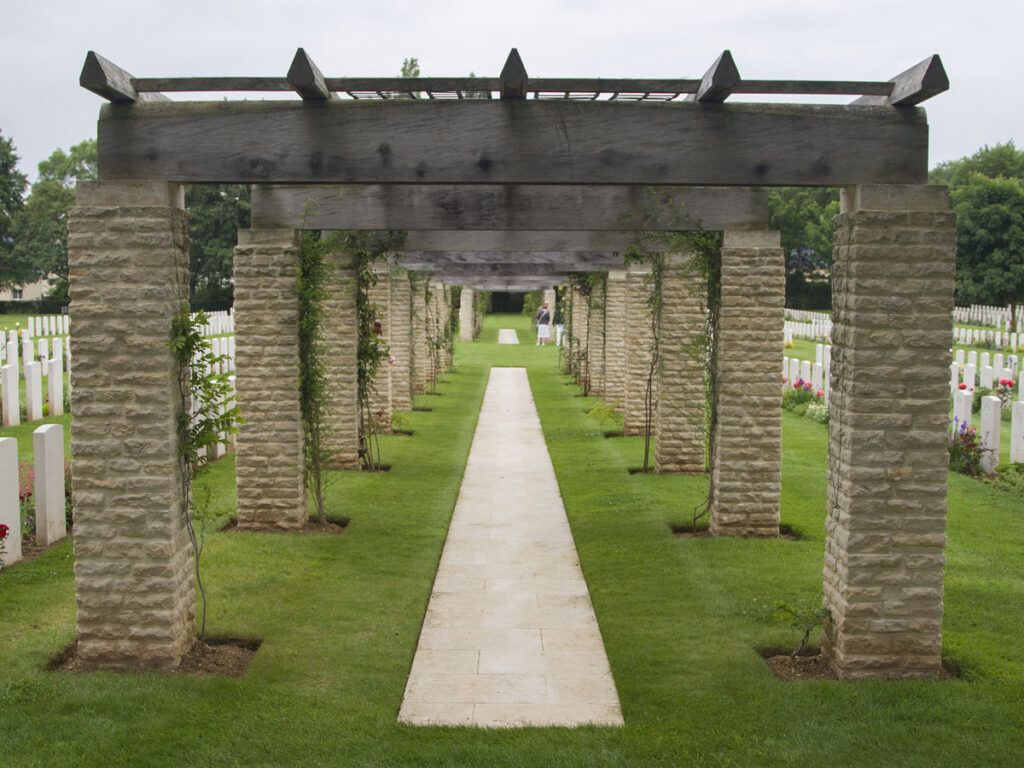
Facilities and Accessibility
The cemetery provides basic visitor amenities to ensure a comfortable experience. Facilities include:
- Information boards with historical context
- Visitor registry book
- Clean restroom facilities
- Several benches for reflection and rest
The cemetery grounds are generally accessible for visitors with mobility issues. Most pathways are paved or well-maintained gravel, allowing wheelchair access throughout most areas. However, some sections may present challenges during wet weather.
The Commonwealth War Graves Commission maintains a visitor center that offers a Memory Anchor tour via their free mobile app. This digital guide enhances your visit with additional context and personal stories of the fallen.
Nearby Accommodations
Many visitors prefer staying in Caen for its wider range of restaurants and amenities. The city offers excellent transport connections to Ranville and other Normandy attractions. Booking accommodations 2-3 months in advance is recommended, especially during summer and anniversary periods.
Recommended stays:
- Hôtel des Quatrans
- Best Western Plus Le Moderne
- Mercure Caen Centre Port de Plaisance
- Ibis Styles Caen Centre Gare
- Hôtel Restaurant Ivan Vautier
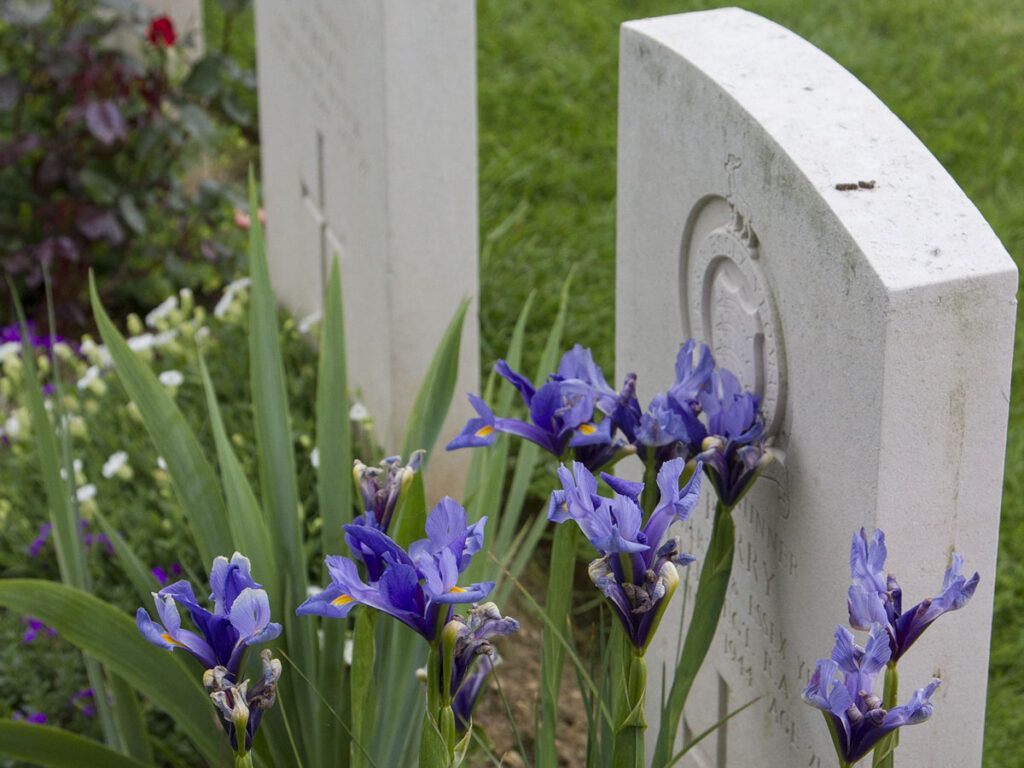
Tours
Guided tours provide valuable insights into the cemetery’s significance. Several options are available:
Specialized Cemetery Tours:
- Commonwealth War Graves Commission volunteer guides (free, but donations appreciated)
- Local historians offering deep historical context (€15-25 per person)
Broader Normandy D-Day Tours: Many comprehensive D-Day tours include Ranville Cemetery as part of their itinerary, often paired with Pegasus Bridge. These typically range from €60-120 depending on duration and inclusions.
Recommended D-Day Tours from Paris:
- From Paris: Normandy D-Day Beaches Day Trip
- From Paris: 2-Day Normandy & Brittany Tour
- Normandy American D-Day Experience (From Bayeux Station)
Recommended D-Day Tours from Bayeux:
- From Bayeux: American D-Day Sites in Normandy Full-Day Tour
- From Bayeux: American D-Day Sites in Normandy Half-Day Tour
- From Bayeux: Half-Day Normandy WWII Sidecar Tour
- Full-Day US Battlefields of Normandy Tour from Bayeux
Recommended Private D-Day Tours:
- From Paris: Normandy D-Day Landing Beaches Full-Day Tour
- From Rouen: Normandy D-Day Beaches Private Full-Day Tour
- Private Tour: Rouen, Bayeux, and Falaise Day Trip from Bayeux
- Normandy WWII Private Half-day Sidecar Tour From Bayeux
Recommended Band of Brothers Tours:
The free Memory Anchor mobile app offers a self-guided experience with personal stories of those buried here. This option allows you to explore at your own pace while still benefiting from expert information.
Consider booking tours in advance, especially during peak season when availability can be limited.
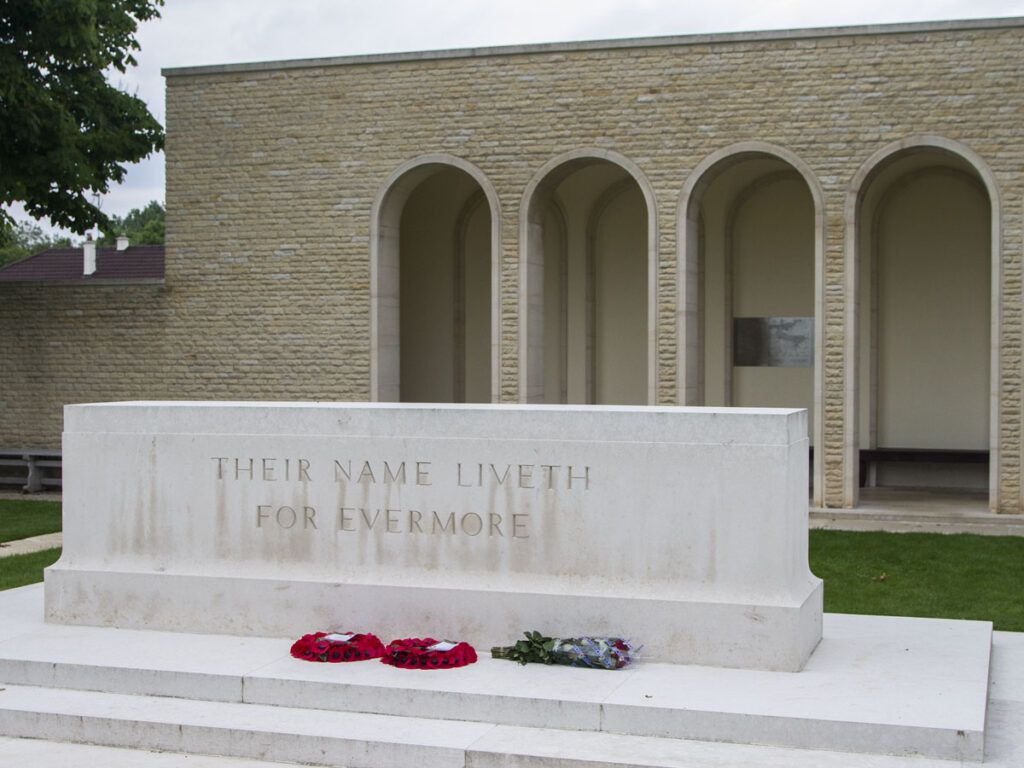
Memorials at Ranville War Cemetery
Ranville War Cemetery honors those who gave their lives during the early stages of the Normandy invasion. The cemetery contains thoughtfully designed memorials that help visitors connect with the sacrifice and courage of those who fought.
Individual Graves
The cemetery contains 2,235 Commonwealth graves, with 97 unidentified soldiers. Each grave is marked with a distinctive headstone that includes the name, rank, regiment, date of death, and age of the fallen soldier when known. You’ll notice that many headstones also bear personal inscriptions chosen by families.
As you walk among the rows, you’ll find graves of soldiers from various units, particularly the 6th Airborne Division who were among the first to land in France. The cemetery also includes 330 German graves, reminding visitors that loss affected both sides of the conflict.
The headstones are arranged in neat rows across immaculately maintained grounds, creating a peaceful and dignified atmosphere for remembrance.
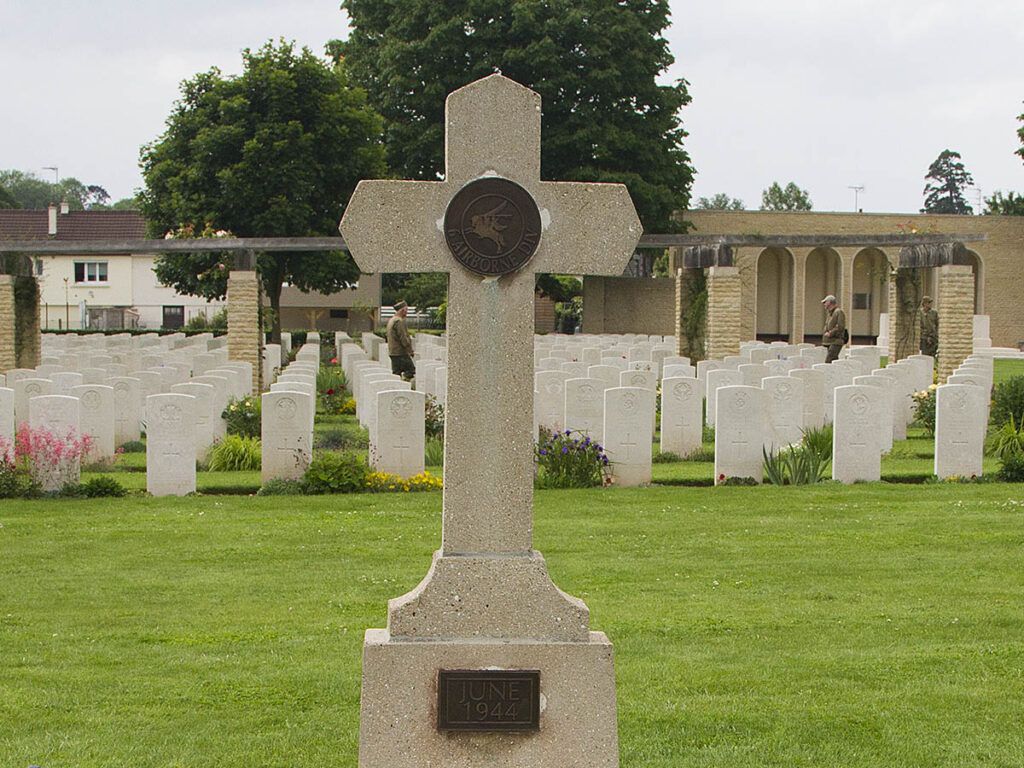
Collective Memorials
Beyond individual graves, Ranville War Cemetery features several collective memorials honoring specific units and collective sacrifices. The central Cross of Sacrifice stands as the cemetery’s focal point, a design element found in Commonwealth war cemeteries worldwide.
You can download the free Memory Anchor tours app on your phone to take virtual guided tours of the memorials. These digital guides provide deeper context about the battles and the men who fought them.
Next to the cemetery, don’t miss the historic Ranville Church and its churchyard, which contains additional graves of the earliest casualties from D-Day, particularly paratroopers who were among the first to liberate French soil.
Nearby Historic Sites and Museums
Ranville War Cemetery is surrounded by many significant World War II sites that tell the story of D-Day and the Battle of Normandy. These historic locations offer deeper insight into the events that shaped modern history and honor those who fought for freedom.
Pegasus Bridge and Museum
Just a short walk from Ranville War Cemetery sits the famous Pegasus Bridge, one of the most important tactical objectives of D-Day. This bridge over the Caen Canal was captured in the early hours of June 6, 1944, by British glider troops in a daring operation.
The Memorial Pegasus Museum nearby houses the original bridge that was replaced in 1994. You’ll find fascinating artifacts, photographs, and detailed exhibits explaining how this crucial mission unfolded. Don’t miss the life-sized replica of a Horsa glider!
The café next to the bridge, Café Gondrée, claims to be the first building liberated on D-Day. It’s still run by the same family and makes for a perfect stop for refreshments while soaking in history.
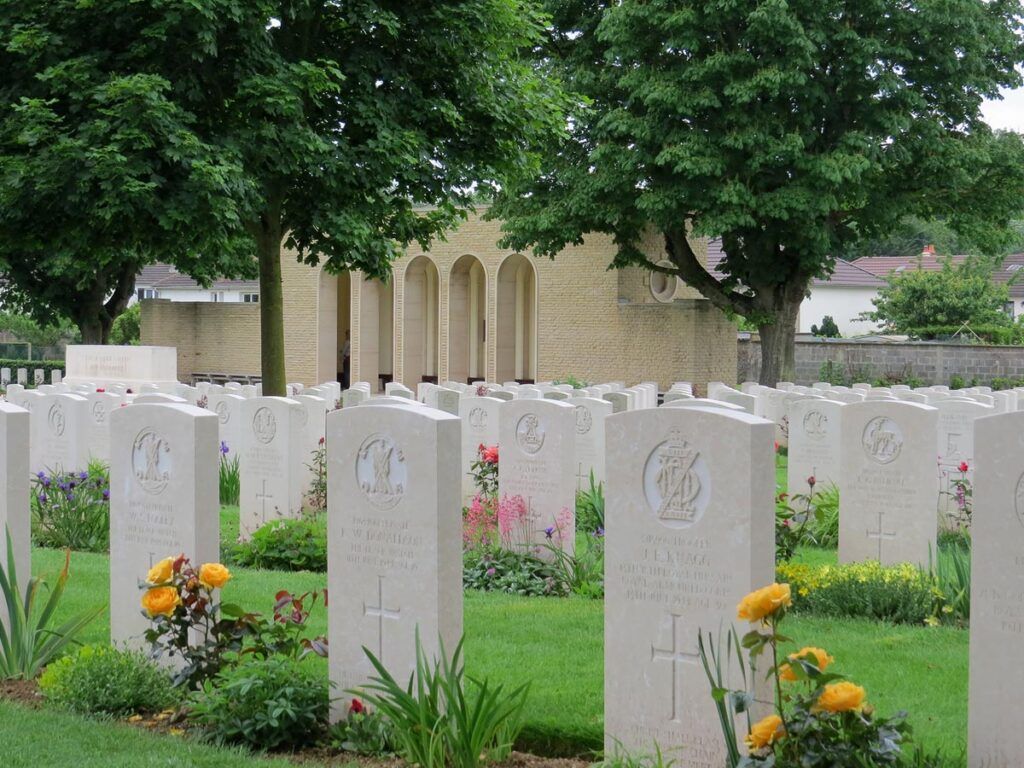
Merville Battery and Museum
About 8 kilometers from Ranville, the Merville Battery was a formidable German coastal defense position. British paratroopers attacked this fortress before dawn on D-Day with just 150 men instead of the planned 600.
Today, the site preserves the original bunkers, gun positions, and trenches. The museum uses sound and light shows to recreate the intense atmosphere of the assault. You can enter the bunkers and see how they were constructed to withstand bombardment.
The restored anti-aircraft gun and period equipment help you understand the challenges faced by Allied forces. Plan to spend about 1-2 hours exploring this well-preserved battlefield.
Caen Memorial
The Caen Memorial, about 15 kilometers from Ranville, offers the most comprehensive examination of World War II in the region. This modern museum isn’t just about military history—it explores the causes and consequences of the war.
You’ll move through expertly designed exhibits covering the rise of fascism, the Holocaust, and the Cold War. The D-Day galleries provide context for the other sites you’ll visit in Normandy.
Plan to spend at least half a day here. The museum has excellent multimedia presentations, a good café, and a peaceful garden dedicated to peace. Audio guides are available in multiple languages to enhance your visit.
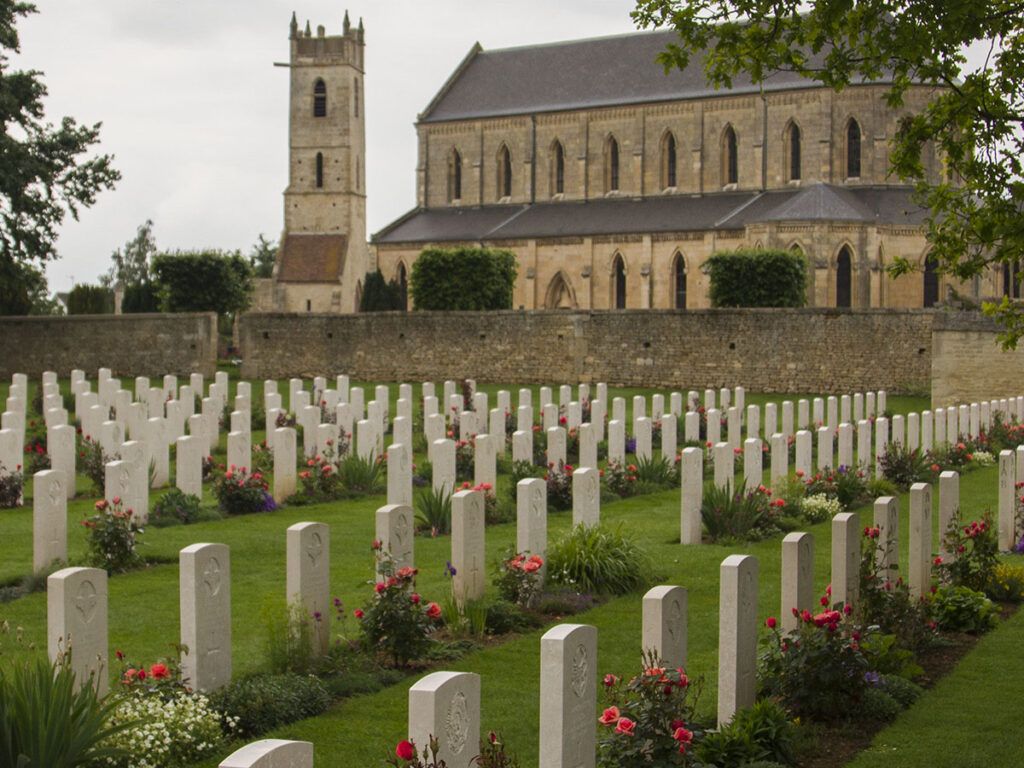
American Cemetery at Colleville-sur-Mer
Though about 40 minutes by car from Ranville, no visit to Normandy’s war sites would be complete without seeing the American Cemetery. This solemn place contains the graves of 9,387 American soldiers beneath perfectly aligned white crosses and Stars of David.
The visitor center uses personal stories to connect you with the sacrifice made by these young men. The cemetery overlooks Omaha Beach, the site of some of the bloodiest fighting on D-Day.
Try to time your visit for the flag-lowering ceremony if possible. The immaculate grounds and stunning coastal setting create a powerful emotional experience for visitors of all nationalities.
Other D-Day Beaches and Museums
The remaining D-Day landing beaches—Sword, Juno, Gold, and Utah—each have their own character and museums. Sword Beach, the closest to Ranville, was where British troops came ashore.
The Juno Beach Centre focuses on the Canadian contribution to D-Day. At Gold Beach, visit the Arromanches 360° Cinema and see the remains of the artificial Mulberry Harbor.
The Utah Beach Museum explains the American landing operations with tanks and aircraft on display. For something different, the German cemetery at La Cambe offers a somber contrast to Allied cemeteries.
Many small museums throughout the region focus on specific aspects of the battle. The Hillman Bunker complex near Colleville-Montgomery shows the German defenses, while the Atlantic Wall Museum in Ouistreham occupies a massive former gun battery.
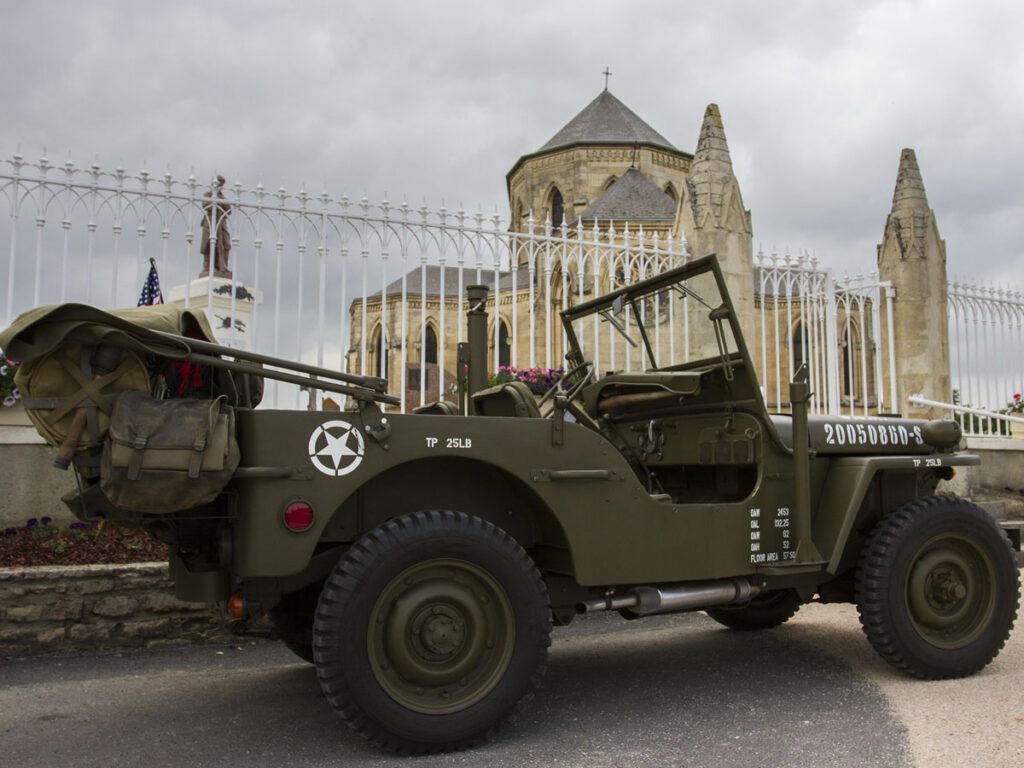
Why It’s Worth Visiting
Ranville War Cemetery offers a deeply moving experience that connects you to the human stories behind World War II. Unlike larger memorial sites, this cemetery provides a more intimate setting to reflect on the sacrifices made during the Normandy campaign.
As the main burial ground for Allied airborne troops in Normandy, Ranville holds over 2,000 graves. The majority are British soldiers who fell during the Battle of Normandy, making it feel like “a piece of England in France.”
The cemetery is exceptionally well-maintained, with neat rows of headstones set against carefully tended grounds. This attention to detail shows the ongoing respect paid to those who lost their lives.
What makes a visit truly meaningful are the personal stories you’ll find. Take time to read the inscriptions on the headstones, some with touching messages from families who lost loved ones far from home.
The peaceful atmosphere allows for quiet contemplation about the human cost of war. It’s a powerful reminder of the sacrifices made by young men who never returned home.
For history enthusiasts, Ranville provides context to the broader D-Day story, focusing specifically on the airborne operations that were crucial to the invasion’s success.
The location itself is significant – Ranville was the first French village liberated on D-Day by British forces. Standing here, you’re on ground that marks the beginning of Europe’s liberation.

